Community Partners
Arbor Day Partners
Open Partner Projects (will be posted once grants are awarded for 2026)
Completed Partner Projects
2025
2025 Arbor Day Partners
|

Organization: City and Country of Honolulu, Division of Urban Forestry
Project Title:Ola Waiʻanae i ka makani Kaiāulu
Project Category: Arbor Day 2025
Location: Oʻahu
Project Overview:The Division of Urban Forestry (DUF) and Pride Softball Association (Pride) are partnering to plant 14 shade trees at Puʻu o Hulu Community Park in Māʻili for the Mayor’s Arbor Day Ceremony on Friday, November 7th, 2025. The planting event will include an address from City staff, the Mayor’s Office, local representatives, and cultural practitioners.
|
|
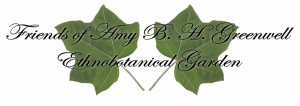
Organization: Friends of Amy B H Greenwell Ethnobotanical Garden
Project Title: Enhancing Friends of Amy B H Greenwell Ethnobotanical Garden Arbor Day 2025
Category: Arbor Day
Location: Ahupuaʻa of Kealakekua, Hawaiʻi Island
Project Overview: As a key focus for our 2025 Arbor Day Celebration, Amy Greenwell Ethnobotanical Garden and Community Forest (AGEG) will produce a short (6-8 minute) educational video highlighting AGEG’s role of in forest restoration and community agroforestry in West Hawai‘i. The video will feature nursery activities, partner restoration projects, and interviews with local experts and farmers who have incorporated AGEG trees and plants in a range of sites featuring different ecological conditions and purposes.
About: Situated in historic Kealakekua ahupua‘a and overlooking the Bay, the 13-acre Amy B. H. Greenwell Ethnobotanical Garden mission supports Hawaiian cultural traditions of land use and plants, and conserves the plant resources of traditional Hawaiian cultural activities. The Garden contains over 200 native plant species, many of which are rare and endangered. Amy’s garden is planted in exactly the right place; a cornerstone of Kamehameha’s agricultural kingdom in the historic ahupuaʻa of Kealakekua.
Visit Their Website
|
|
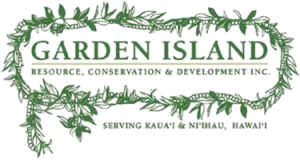
Organization: Garden Island Resource Conservation & Development, Inc.
Project Title: Arbor Day 2025
Project Category: Arbor Day
Location: Kauaʻi
Project Overview: Kauaʻi Landscape Industry Council (KLIC), a project of Garden Island Resource Conservation & Development, Inc. (GIRC&D) has offered free trees since 2006. Members of KLIC plan year-round to offer an educational event with at least 650 free native, canoe and non-invasive trees and shrubs. Plant information is available to show cultural and growing needs for all plants offered. Arbor Day builds a stronger community by educating the public on proper plant selection along with use and care. The health of people and the urban landscape is enhanced and strengthened with thriving plants.
About: The mission of GIRC&D is to carry out a plan for the orderly conservation, development and prudent use of natural and human resources to improve economic, social and environmental opportunities for the people of Kauaʻi.
Visit Their Website
|
|
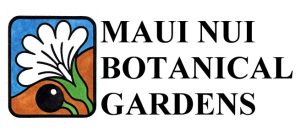 Organization: Maui Nui Botanical Gardens Inc. Organization: Maui Nui Botanical Gardens Inc.
Project Title: Arbor Day 2025
Project Category: Arbor Day
Location: Ahupuaʻa of Wailuku, Maui
Project Overview: : Mauiʻs Arbor Day event will be on November 8 from 9 am to 2 pm at Maui Nui Botanical Gardens in Kahului. Plenty of keiki activities will be on offer, including tree climbing with Kane’s Legacy Tree Services; native plant lei making with Native Hawaiian Plant Society, Hawaiian games ihe (spear throwing), moa paheʻe (wood dart sliding), ʻulu maika (disc bowling), hukihuki (tug of war), and kōnane (Hawaiian checkers); making oeoe (kamani nut whistle), ulana niu (weaving), and making hū kukui (kukui nut tops)! Trees are one per person, any age. More pono plants will be for sale by local vendors. In partnership with the Maui Association of Landscape Professionals, Hawaiian Electric, and Kauluani Urban and Community Forestry Program.
Visit their website.
|
|
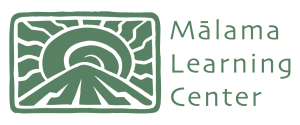 Organization: Mālama Learning Center Organization: Mālama Learning Center
Project Title: E Ulu Mau Ke Kaiāulu O Waiʻanae: A Tree to Table Experience
Project Category: Arbor Day 2025
Location: Nānākuli Ahupuaʻa, Oʻahu
Project Overview: Building upon a previously successful event at the Kalanihookaha Community Learning Center in Nānākuli with Kamehameha Schools in 2024, this Arbor Day 2025 event will focus on promoting the planting of native and canoe plants. Attendees will learn proper planting techniques, receive free non-invasive trees, including ‘ulu, citrus, and smaller plants, and participate in hands-on activities demonstrating culinary uses for plants like ʻulu, calamansi, and kalo. This event also aims to address climate change impacts such as rising heat, wildfires, and food insecurity by showcasing community-based solutions like urban forestry and green firebreaks.
Visit their website
|
|
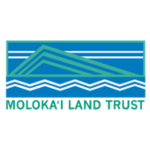
Organization: Molokaʻi Land Trust
Project Title: Arbor Day 2024 Tree Distribution
Project Category: Arbor Day
Location: Molokaʻi
Project Overview: This project aims to build capacity for native tree production and distribution to the entire Molokaʻi Community, create networks of community groups to further the goals and outcomes for the Kaulunani Program, increase education of the public on successful tree planting efforts and survivability, develop standardized evaluation process through a partnership with NTBG, develop a native tree seed bank network of ‘community tree planting’ property owners for the local mobile market, and greater restoration efforts by local entities and organizations on the island.
Visit their website
|
2024
2024 Arbor Day Partners
|
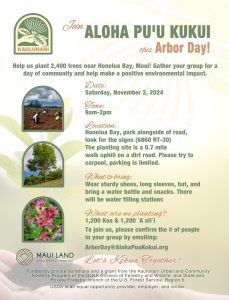 Organization: Aloha Puʻu Kukui Organization: Aloha Puʻu Kukui
Project Title: Wao Kele o Honolua
Project Category: Arbor Day 2024
Location: Ahupua’a of Honolua, Maui
Project Overview: On Arbor Day, we are going to host a large planting event for the community at Wao Kele o Honolua. We are working to restore this former pineapple field back to native forest. We plan to have over 100 volunteers planting over 1200 trees.
About: The Pu’u Kukui watershed extends across Mauna Kahālāwai on Mauiʻs West side. This pristine area is a vital water source for Mauiʻs community and one of the wettest spots on earth. The intact native Hawaiian forest at Pu‘u Kukui works as a natural sponge to capture the water used by the entire West Maui community. It is home to plant and animal species that exist nowhere else in Hawai‘i, or anywhere else. A small crew of paid staff and volunteers has been working over the last 30 years to protect the native forests and stop the threats from invasive plants and animals. Our long-term goal is to restore damaged lands and expand the native forest.
Visit their website.
|
|

Organization: City and Country of Honolulu, Division of Urban Forestry
Project Title: Mayor’s Arbor Day Celebration Māʻili Community Park
Project Category: Arbor Day
Location: Māʻili, Oʻahu
Project Overview: The Division of Urban Forestry is organizing a tree planting, tree giveaway, and education fair at Māʻili Community Park for 2024 Mayor’s Arbor Day. DUF will collaborate with Māʻili Elementary and community groups to plant shade trees, donate native/fruit trees, and host an education fair.
About: The City’s Department of Parks and Recreation, Division of Urban Forestry (DUF) is dedicated to protecting and improving Oʻahu’s urban forest and tree canopy. The Honolulu Botanical Gardens (HBG) branch and the Community Forestry section focus on urban forestry education and working with the community to reforest urban ʻāina and facilitate community-informed and community-based stewardship of public spaces.
|
|

Organization: Garden Island Resource Conservation & Development, Inc.
Project Title: Kauaʻi Arbor Day Free Trees and Tree Information
Project Category: Arbor Day
Location: Kauaʻi
Project Overview: Kauaʻi Landscape Industry Council (KLIC), a project of Garden Island Resource Conservation & Development, Inc. (GIRC&D) has offered free trees since 2006. Members of KLIC plan year-round to offer an educational event with at least 650 free native, canoe and non-invasive trees and shrubs. Plant information is available to show cultural and growing needs for all plants offered. Arbor Day builds a stronger community by educating the public on proper plant selection along with use and care. The health of people and the urban landscape is enhanced and strengthened with thriving plants.
About: The mission of GIRC&D is to carry out a plan for the orderly conservation, development and prudent use of natural and human resources to improve economic, social and environmental opportunities for the people of Kauaʻi.
Visit Their Website
|
|
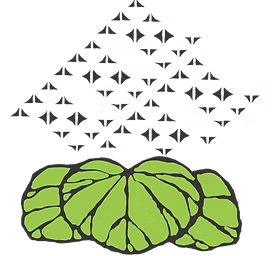 Organization: Hālau Kū Māna New Century Public Charter School (HKM) Organization: Hālau Kū Māna New Century Public Charter School (HKM)
Project Title: Lā ʻOhana Uka Project
Project Category: Education & Outreach
Location: Ahupuaʻa of Honolulu, Oʻahu
Project Overview: Hālau Kū Māna (HKM) New Century Public Charter School is committed to revitalizing culture, restoring ecology, and fostering community empowerment. The 8th-grade curriculum integrates Native Hawaiian plants with cultural, historical, and scientific perspectives, emphasizing place-based learning and the restoration of native Hawaiian forests. As part of the curriculum, the students will host a Lā ʻOhana, or family day, where approximately 40-60 students, families, and community members will engage in place- based learning and participate in planting trees and plants along the stream to help restore our environment and ecosystem. Ultimately, this project aspires to spark interest in establishing a Hawaiian- focused junior foresters program and to create a greater appreciation and connection to ʻāina among our students and their families.
Visit their website.
|
|
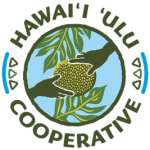 Organization: Hawaiʻi ʻUlu Producers Cooperative (HUC) Organization: Hawaiʻi ʻUlu Producers Cooperative (HUC)
Project Title: Growing the RevʻULUtion
Project Category: Arbor Day 2024
Location: Ahupua’a of Honaloolua, Hawaiʻi
Project Overview: For Arbor Day 2024 the ʻUlu co-op will be giving away 150 ʻulu trees, providing a cooking demonstration and ʻulu growing education. The event will be held at Amy Greenwell Ethnobotanical Garden and feature Hawaiian music and activities for kids.
About: HUC is the premier ʻulu farmer organization in Hawai’i and virtually all co-op members are small, local farms or backyard growers. By working together, our farmers can supply canoe crops to commercial kitchens and grocery stores with strict food safety compliance measures. HUC’s innovative, minimally processed approach to providing staple foods to the community strengthens Hawaiʻi’s food sovereignty. Community education programs like the Arbor Day 2024 event proposed here, is an important part of HUC’s efforts to increase awareness, production and consumption of ʻulu to ultimately strengthen Hawaiʻiʻs long-term food security.
Visit their website
|
|
 Organization: Maui Nui Botanical Gardens Inc. Organization: Maui Nui Botanical Gardens Inc.
Project Title: Arbor Day Garden Expo and Hawaiian Tree Giveaway
Project Category: Arbor Day
Location: Ahupuaʻa of Wailuku, Maui
Project Overview: The purpose of this event is to increase urban tree cover in residential areas in Maui, encourage Maui residents to value native Hawaiian trees in cultivation and in forests, and promote best tree care practices for urban landscapes. The activities are a Garden Expo and Tree Giveaway held November 2, 2024, where native Hawaiian and non-invasive Polynesian introduced trees are distributed, one per person, with free hands-on Hawaiian crafts using native trees, free tree care and horticultural demos, forest conservation information, a keiki tree climbing activity with certified arborists, and additional ʻōhiʻa trees and ʻōhiʻa related activities and presentations sponsored by partners.
Visit their website.
|
|

Organization: Molokaʻi Land Trust
Project Title: Arbor Day 2024 Tree Distribution
Project Category: Arbor Day
Location: Molokaʻi
Project Overview: Molokaʻi Land Trust will collect and grow out more than 300 seedlings (for example – ʻaʻaliʻi, kou, ʻōhia, koaiʻa, ʻūlei, māmaki and/or ʻākia) for a community giveaway Arbor Day event, 2nd November 2024. The plants will be matched with information about planting and care. MLT will also work with MISC to provide education about invasive species threats to the island.
About: The mission of the Moloka’i Land Trust is to protect and restore the land, natural and cultural resources of Moloka’i, and to promote, educate, and perpetuate the unique Native Hawaiian traditions and character of the islands for the benefit of the future generations of all Moloka’i, particularly Native Hawaiians.
Visit Their Website
|
|
Organization: Planting Trees for Hawaii
Project Title: 2024 Arbor Day Fruit Tree Distribution in Nānākuli, Waianae
Project Category: Arbor Day
Location: Oʻahu
Project Overview: In partnership with the Nānākuli Elementary School, the project will enhance local food production in the urban landscape by growing and distributing 200 grafted fruit trees grown through the school’s plant nursery. Trees will be distributed to residents of Nānākuli via a drive-through Tree Giveaway event in November 2024.
About: Planting Trees for Hawaii is a non-profit organization dedicated to empowering disadvantaged individuals and communities to harness the transformative power of nature by cultivating and planting trees. Our mission is to create a sustainable and greener world while fostering economic, social, and environmental well-being for all. We work throughout the Hawaiian Islands with tree nurseries on Maui and Oʻahu to propagate and distribute fruit trees.
|
|
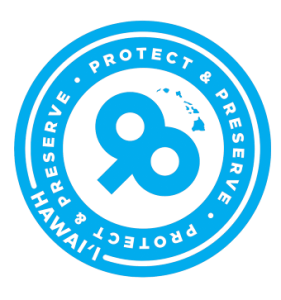 Organization: Protect & Preserve Hawaiʻi Organization: Protect & Preserve Hawaiʻi
Project Title: Celebrating Arbor Day in Pia Valley
Project Category: Education & Outreach
Location: Ahupuaʻa of Waikīkī, Oʻahu
Project Overview: Protect & Preserve Hawaiʻi (PPH) will host a community-driven ecological restoration event for Arbor Day. The public will be invited to East Honolulu’s Pia Valley to participate in invasive species removal and native tree planting, highlighting the significant environmental and community benefits of trees. The event will also feature a tree giveaway and a plan for media coverage to further promote environmental education and awareness.
Visit their website.
|
|

Organization: University of Hawaii Urban Garden Center
Project Title: 2024 Arbor Day Grafted Tree Giveaway at the Urban Garden Center
Project Category: Arbor Day 2024
Location: Ahupua’a of Waiawa & Mānana
Project Overview: The Grafting Hui at the Urban Garden Center (UGC) will be giving away grafted fruit trees, root stock, and scion wood during an Arbor Day event in November 2024. The project will also support nursery capacity building, purchasing supplies and planting media to ensure that tree grafting can be taught to volunteers and the public into the future.
About: The grafting hui is one of multiple volunteer groups under the Master Gardener Program at the University of Hawaii’s Urban Garden Center. The hui supports the Master Gardener Program by providing research-based horticultural information to volunteers and the public. The UGC serves the urban Oahu community through education and outreach. It hosts the Oʻahu Master Gardener Program, UH 4-H Program, and other educational groups.
|
2023
2023 Arbor Day Partners
|

Organization: Garden Island Resource Conservation & Development, Inc.
Project Title: Kauaʻi Arbor Day Free Trees and Tree Information
Project Category: Arbor Day
Location: Kauaʻi
Project Overview: Kauai Landscape Industry Council (KLIC), a project of Garden Island Resource Conservation & Development, Inc. (GIRC&D), has offered free trees since 2006. Members of KLIC plan to offer at least 700 native, canoe & non-invasive trees & shrubs on 11/4/2023. Plant information is shared with attendees that day to show the cultural and growing needs of all plants.
About: The mission of GIRC&D is to carry out a plan for the orderly conservation, development and prudent use of natural and human resources to improve economic, social and environmental opportunities for the people of Kauaʻi.
Visit Their Website
|
|

Organization: Hawaiʻi ʻUlu Producers Cooperative
Project Title: Let’s Build a RevʻULUtion in West Hawaiʻi!
Project Category: Arbor Day
Location: Hawaiʻi
Project overview: Hawaiʻi ʻUlu Co-op proposes a holistic, multi-faceted ʻulu workshop at its flagship facility in Honalo, Hawaiʻi Island that will focus on ʻulu propagation, planting, maintenance and harvesting for small farms and backyard growers. A particular consideration will be placed on diversified agroforestry systems where ʻulu is intentionally integrated with other crops and/or small animals for maximum system health and productivity. The practices discussed will focus on those relevant for homes, schools, and small, diversified growers or urban farmers in West Hawaiʻi.
This workshop will provide useful information for those who already steward ʻulu trees on their properties or in public spaces, as well as for those interested in incorporating ʻulu into their landscapes with minimal experience with the crop. This will strengthen relationships between a diverse range of community members and ʻulu as a crop of significance both historically and today while increasing the region’s food security.
About: Founded in 2016 by nine farmers on Hawaiʻi Island, the ʻUlu Co-op is an agricultural producer cooperative committed to revitalizing ʻulu (breadfruit) as a viable crop and dietary staple. We do this by empowering farmers as change-makers in Hawaiʻi’s food system.
Visit their website
|
|

Organization: Maui Nui Botanical Gardens Inc.
Project Title: Arbor Day Garden Expo and Hawaiian Tree Giveaway
Project Category: Arbor Day
Location: Maui
Project Overview: The purpose of this event is to increase urban tree cover in residential areas in Maui, encourage Maui residents to value native Hawaiian trees in cultivation and in forests, and promote best tree care practices for urban landscapes. The activities are a Garden Expo and Tree Giveaway held November 2, 2024, where native Hawaiian and non-invasive Polynesian introduced trees are distributed, one per person, with free hands-on Hawaiian crafts using native trees, free tree care and horticultural demos, forest conservation information, a keiki tree climbing activity with certified arborists, and additional ʻōhiʻa trees and ʻōhiʻa related activities and presentations sponsored by partners.
About: Maui Nui Botanical Gardens is a public native plant garden in Central Kahului with free admission for Hawaiʻi residents. Their mission is to foster an appreciation and understanding of Maui Nui’s plants and their role in Hawaiian cultural expression by providing a gathering place for discovery, education, and conservation. Throughout the year they offer docent- and self-guided tours, cultural workshops utilizing native plants, and free plant consultations.
Visit their website
|
|
Organization: State of Hawaiʻi, Department of Land and Natural Resources, Forestry & Wildlife – Molokaʻi
Project Title: Moloka‘i Arbor Day 2023 Tree Giveaway
Project Category: Arbor Day
Location: Molokaʻi
Project overview: Division of Forestry and Wildlife staff and contractors will collect and grow out seedlings (ʻaʻaliʻi, kou, ʻōhia, koaiʻa, ulei, mamaki, akia, >70% trees) for a community giveaway Arbor Day event, hosted at the Molokaʻi DOFAW baseyard. The giveaway will be advertised through DOFAW channels and with partners such as the Nature Conservancy and the Molokaʻi Land Trust.
About: The mission of DOFAW is to protect, manage, and restore natural and cultural resources in collaboration with the people of Hawaiʻi. We envision a future with thriving native ecosystems and opportunities for the people of Hawaiʻi to engage with nature.
|
|
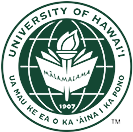
Organization: University of Hawaiʻi at Mānoa – Building & Grounds Management
Project Title: Arbor Day 2023 and Arboretum Appreciation Day
Project Category: Arbor Day
Location: Oʻahu
Project overview: Arbor Day 2023 and Arboretum Appreciation Day will be an opportunity to educate our broader community on the effects of CRB in Hawaii and provide our community with the ability to hānai and mālama those species known to be subjected to this pest. Additionally, we would like to be able to do the same for our community by providing families with a tree that can nourish and mālama them and will be providing fruit trees for adoption too.
About: Located in the most diverse community and environment in the world, the University of Hawaiʻi at Mānoa is a globally recognized center of learning and research with a kuleana to serve the people and places of Hawaiʻi, and our neighbors in the Pacific and Asia. We cultivate creative and innovative leaders who mālama our people, our places, and our ways of knowing in order to sustain and transform our islands and the world. The grounds of our campus are an accredited arboretum, showcasing plants from Hawai‘i, the Pacific, and across the tropics, including a number of truly exceptional trees. The primary function of arboretum is to support the educational mission of the University.
Visit their website.
|
2022
2022 Arbor Day Partners
|

Organization: Nanakuli High and Intermediate School
Project Title: NHIS ʻAʻaliʻi Tree Buffer
Category: Arbor Day
Location: Waiʻanae, Oʻahu
Project Overview: The ʻAʻaliʻi Tree Buffer project will occur along Nanakuli Avenue on a denuded strip of land belonging to Nanakuli High and Intermediate School. The project site borders the school’s Hoʻopulapula (Hawaiian Homesteading) Academy Farm and is intended to reduce erosion, replace invasive non-native plants, mitigate potential wildfires, and provide a wind break for down-wind crops.
The project supplements the intermediate’s homesteading academy curriculum which teaches sustainability and farming from a Hawaiian cultural perspective.
About: Nanankuli High and Intermediate (NHIS) is a 7th – 12th grade public school that focuses on fostering positive and caring relationships, providing a stimulating curriculum and making learning relevant for all students. NHIS students (beneficiaries) are predominately Native Hawaiian and/or Pacific Islander and come from low-income households.
Visit Their Website
|
|

Organization: Trees for Honolulu’s Future
Project Title: Measuring IMPACT & Capturing BEST PRACTICES in Tree Adoption Events to cultivate Community/Trees
Category: Arbor Day
Location: Honolulu, Oʻahu
Project Overview: Kaimuki Arbor Day 2021 – A community growing trees together! benefited residents who received trees, our community growers, and the businesses involved in publicizing/serving as rewards for those who followed through with 3 commitments – planting, registering, and posting about their adopted trees. This follow on project will exponentially expand the benefitting parties by following the residents who received the trees to find out outcomes. This grant will support research, publication, and dissemination of factual conclusions and best practices about an actual tree adoption event. This study will be valuable to communities across the state, and beyond, that wish to engage in growing communities through tree planting with residents through tree “giveaway” events that result in an increased tree planting/survival rate. By understanding the “nudges”, or the human psychology, that will move people from a wish, a good thought like “I should plant a tree”, into action, will be a critical deliverable. It will provide recommendations and best practices that could increase the tree canopy and care of our trees.
About: The mission of Trees for Honolulu’s Future includes facilitating the planting and caring for new trees and the protecting of existing trees in communities across O‘ahu and specifically connecting communities with expert assistance and funding; Educating the public and government officials on the benefit of the right tree, in the right place, getting the right care; Advocating for laws, policies, projects, and funding that support the planting and caring for and protection of trees.
Visit Their Website
|
|

Organization: Maui Nui Botanical Gardens Inc.
Project Title: Arbor Day Garden Expo and Tree Give Away
Category: Arbor Day
Location: Kahului, Maui
Project Overview: Maui Nui Botanical Gardens’ Arbor Day Garden Expo and Tree Giveaway has the goals of increasing urban tree cover in residential areas in Maui, encouraging Maui residents to value native Hawaiian trees, and promoting best tree care practices for urban landscapes. The project is making it easier for Central Maui residents to include native Hawaiian trees and shrubs on their properties, directly contributing to the increase in urban tree cover and helping create landscapes that celebrate the unique natural and cultural history of Hawai‘i.
About: Maui Nui Botanical Gardens is a public native plant garden in Central Kahului with the mission to foster an appreciation and understanding of Maui Nui’s plants and their role in Hawaiian cultural expression by providing a gathering place for discovery, education, and conservation. We offer docent- and self-guided tours, cultural workshops, community outreach events, and free plant consultations.
Visit Their Website
Maui Arbor Day Expo Website
|
|

Organization: Friends of Amy B H Greenwell Ethnobotanical Garden
Project Title: Community Engagement and Volunteer Support at Ala Mahamoe Urban Forest Restoration Site
Category: Arbor Day
Location: Captain Cook, Hawaiʻi
Project Overview: The Friends of Amy Greenwell Ethnobotanical Garden plan a large native tree/shrub Give Away for our community. We will propagate plants in our nursery, and Arbor Day funds would support our production costs with matching funds from the Laurence Dorcy Hawaiian Foundation Grant and in-kind volunteer/staff hours. We focus on Ohia, Koa and ʻAʻaliʻi, but will substitute if needed.
Prior to Covid, several thousand visitors came to the Garden each year. We hope that 2022 will be the year in which the Garden is again a focal area of our community for enjoying the benefits of walking the trails through the forests; for studying our world-renowned plant collection; for students of all ages to learn Hawaiian crafts, and where community celebrations are held.
About: Situated in historic Kealakekua ahupua‘a and overlooking the Bay, the 13-acre Amy B. H. Greenwell Ethnobotanical Garden mission supports Hawaiian cultural traditions of land use and plants, and conserves the plant resources of traditional Hawaiian cultural activities. The Garden contains over 200 native plant species, many of which are rare and endangered. Amy’s garden is planted in exactly the right place; a cornerstone of Kamehameha’s agricultural kingdom in the historic ahupua`a of Kealakekua.
Visit Their Website
|
|
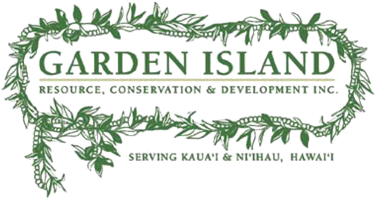
Organization: Garden Island Resource Conservation & Development, Inc.
Project Title: Kauai Arbor Day Free Trees and Tree Information
Category: Arbor Day
Location: Lihue, Kauaʻi
Project Overview: Kauai Landscape Industry Council (KLIC), a project of Garden Island Resource, Conservation, & Development, Inc, has offered free trees since 2006. Members of KLIC plan year-round to offer at least 650 native, canoe and non-invasive trees & shrubs via a drive through event. Plant info is available to show cultural and growing needs of all plants.
Our goal is to bring the community as both volunteers & participants to promote the value of a healthy ecosystem by proper selection of plants that fit in our unique urban habitat. By educating how to nurture native & non-invasive plants, we foster appreciation of new plant species & enhance our island’s beauty every year that this event is funded.
About: The mission of GIRC&D is: To carry out a plan for the orderly conservation, development and prudent use of natural and human resources to improve economic, social and environmental opportunities for the people of Kauaʻi. Arbor Day builds a stronger community by educating the public on proper plant selection & use & care. The health of people and the urban landscape is enhanced & strengthen with more plants.
Visit Their Website
|

Organization: Ke Kula Nui o Waimānalo
Project Title: Waimanalo Celebrates Arbor Day 2022!
Category: Arbor Day
Location: Waimanalo, Oʻahu
Project Overview: KKNOW will partner with UH/CTAHR to hold educational workshops on ‘ulu (Artocarpus atilis) tree propagation on Earth Day and Arbor Day using proven methods. The 150 trees propagated on Earth Day will be distributed on Arbor Day, along with 100 dwarf niu (Cocos nucifera) as part of a larger educational event at the Waimanalo Research Station highlighting tree care techniques.
About: The mission of KKNOW is to provide a community of practice through collaboration to promote strong and healthy ahupuaʻa. From replenishing limu, to home aquaponics and ensuring ethically responsible community research our program list grows to service those in need.
Visit Their Website
|
Community Grant Partners
Open Partner Projects (will be posted once grants are awarded for 2026)
Completed Partner Projects
2025
2025 Community Partners
|
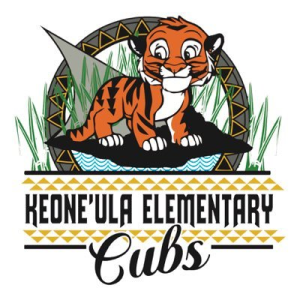 Organization: Keoneʻula Elementary School Organization: Keoneʻula Elementary School
Project Title: SLC Lā Honua 100 Tree Give Away
Project Category: Education & Outreach
Location: Ahupuaʻa of Honouliuli, Oʻahu
Project Overview: The Sustainable Living Club at Keoneʻula Elementary, comprising 4th and 5th graders, plans to host a native Hawaiian Lā Honua 100 Tree Give Away on Earth Day 2025 for the ‘Ewa Beach community. The event aims to provide education on tree issues where we live, work, learn, and play, native tree planting, maintenance, and care. The event will also feature education on Native Hawaiian culture and raise awareness about invasive species like the Coconut Rhinoceros Beetle.
Visit their website.
|
|
Organization: Laʻi Hauola
Project Title: Nā Kumu ʻulu o Ka Malu ʻUlu o Lele
Project Category: Education & Outreach
Location: Moku of Lāhainā, Maui
Project Overview: The intention of this project is to identify and perpetuate the historically accurate mo’okū‘auhau of the kumu ʻulu of the original Malu ʻUlu o Lele, and connect this information to the propagation and perpetuation of the tree lineages in the region. Laʻi Hauola and partners are currently in the process of verifying the correct kūpuna and mo’okū‘auhau of the seven different ‘ulu that were successfully propagated, and developing the plan to ensure the kaiāulu of Lāhainā will have these trees and their associated ʻike preserved for generations to come. |
|
Organization: Le Jardin Academy
Project Title: Kahanaiki Restoration and Experiential Education
Project Category: Tree planting
Location: Ahupuaʻa of Kailua, Oʻahu
Project Overview: Since January 2021, Le Jardin Academy (LJA) has been working in partnership with the Department of Land and Natural Resources (DLNR) Forestry and Wildlife to steward Kahanaiki, a seven-acre parcel within Kawainui Marsh, at the junction of Kalanianaʻole Highway and Kapaʻa Quarry road. Located across from LJA, the school utilizes Kahanaiki as an outdoor classroom to learn about native plants and ecosystems, the value of healthy watersheds, and cultural history. These funds will support the purchase of native plants to continue restoring ecological abundance to Kawainui through place-based and experiential learning.
Visit their website.
|
|
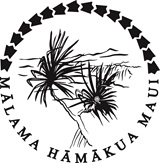 Organization: Mālama Hāmākua Maui Organization: Mālama Hāmākua Maui
Project Title: Hāmākualoa Community Reforesting
Project Category: Tree planting
Location: Ahupuaʻa of Kaupakulua, Maui
Project Overview: Overall, this project will return former agricultural lands (pineapple, mostly) to a state closer to what the lands were before the plantation era. Through community involvement, the Hāmākualoa Open Space can be a lasting community and ecological asset by removing invasive species and restoring native trees and shrubs. This phase of the project will reforest about 1.5 acres of land in the Hāmākualoa Open Space Preserve, replacing invasive species with predominantly native trees.
Visit their website.
|
|
Organization: University of Hawaiʻi
Project Title: Sustaining and Expanding School Agroforests on O‘ahu (SESA-O‘ahu)
Project Category: Tree planting
Location: Mokupuni o Oʻahu
Project Overview: Building on the success of SPROUTS-O‘ahu, this project will sustain and expand agroforests at selected public schools on O‘ahu through the planting and care of additional food-producing and culturally- significant species. Participating schools will be supported through the development of agroforestry designs and maintenance plans, and ongoing provision of technical assistance, while participating educators will be engaged through immersive community-based educational events related to the benefits and care of agroforests.
Visit their website.
|
|
Organization: Hakuhia
Project Title: Regeneration of a Golf Course into a Community and Environmental Resource
Project Category: Technical training
Location: Ahupuaʻa of Kailua and Kāneʻohe, Oʻahu
Project Overview: Hakuhia means to invent, to innovate. By remembering, connecting, and redeeming, Hakuhia will create a renewed place of healing and restoration for our community. Hakuhia is a vision where both the ʻāina and people flourish. Since 2021, Hakuhia has put boots on the ground to mitigate invasive species and start to restore the ʻāina with a native tree canopy and plants. This project proposal extends these efforts, focusing on the removal of Albizia and Gunpowder trees, and replanting with native tree species, while creating opportunities to bring Hakuhia’s local community alongside this healing journey.
Visit their website.
|
|
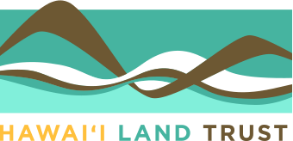 Organization: Hawaiian Islands Land Trust Organization: Hawaiian Islands Land Trust
Project Title: Mala’ai Ho’omalu
Project Category: Tree planting
Location: Ahupuaʻa of Wailuku, Maui
Project Overview: The community garden and farm at Mala’ai Ho’omalu is utilizing this public land to cultivate a safe and healthy space for demonstration gardens, family allotments, and community participation in food forestry and native plant restoration. This project aims to offer and sustain: 1) long term food producing trees providing local resources and increased biodiversity; 2) on-site organic gardening classes, with an emphasis on traditional cultural practices and soil regeneration; 3) veggie, fruit, and kitchen herb plots providing food production and security for participants of all ages and ability.
Visit their website.
|
|
Organization: Livable Hawaiʻi Kai Hui
Project Title: Cultivating Community Roots Through Creation of a Cultural Garden
Project Category: Tree planting
Location: ʻIli of Maunalua, Ahupuaʻa of Waimānalo, Oʻahu
Project Overview: Livable Hawaiʻi Kai Hui seeks to: (i) remove fire-prone, non-native trees and grasses in the project area, (ii) plant indigenous and endemic Hawaiian dry forest trees and shrubs, as well as a couple non- invasive plants, on the uplands and along the fence line of Keawāwa wetland at the Hāwea Heiau Complex and Keawāwa Wetland (“Hāwea/Keawāwa”) located in Hahaione Valley, East Honolulu, (iii) reestablish a medicinal, dye, and lei garden, and (iv) develop educational materials to help explain the practical value (e.g., watershed, flooding, fire management, recreation) of using native Hawaiian (i.e., indigenous and endemic) dryland forest tree and shrub species at wildland-urban interfaces on Oʻahu.
Visit their website.
|
|
Organization: Planting Trees for Hawaiʻi
Project Title: Earth Day 2025 Breadfruit Tree Give-a-Way: A Partnership for Oʻahu
Project Category: Tree planting
Location: Ahupuaʻa of Honolulu, Kalihi, Honouliuli, Nānākuli, Waiʻanae, Kāneʻohe, and Waimānalo, Oʻahu
Project Overview: In partnership with the Nānākuli Elementary School, Mālama Learning Center (nursery based at Kapolei High School), and Keiki o Ka ʻĀina (Kalihi), this project will enhance local food production in the urban landscape by growing and distributing 585 fruit trees grown through the individual organizations nurseries. Trees will be distributed at 3 separate celebratory Earth Day tree giveaway events to participants who pre-register. |
|
Organization: Rice Street Business Association
Project Title: Rice Street Māla Lāʻau
Project Category: Tree planting
Location: Ahupuaʻa of Kalapakī, Kauaʻi
Project Overview: The main purpose of the proposed project is to remove dead/dying vegetation along Rice Street and replace with native trees and culturally appropriate fruit trees, thereby creating a mini māla lāʻau (forest garden) in downtown Līhuʻe. The project will be carried out by a community-government partnership team (between the County of Kauaʻi, nonprofits, and volunteers) who previously worked together to develop a stewardship plan, which identifies planting locations, appropriate species, and maintenance protocols. If successfully completed, the project will result in the installation and maintenance of approximately 30 new trees, and complimentary shrubs and groundcover, along Rice Street, with the hopes of becoming a model for urban tree care in neighborhoods throughout Hawaiʻi.
Visit their website.
|
|
Organization: Waimānalo Hawaiian Homestead Association
Project Title: ʻĀina Hoʻopulapula ‘o Waimānalo
Project Category: Tree planting
Location: Moku of Koʻolaupoko, Oʻahu
Project Overview: ʻĀina Ho’opulapula ‘O Waimānalo aims to enhance the grounds of the Waimānalo Homestead Hālau by planting culturally significant, non-invasive, and food or medicinal-producing vegetation. This initiative will create a sustainable and culturally enriching environment that benefits the community through education, health, and environmental stewardship.
Visit their website.
|
2024
2024 Community Partners
|
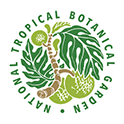
Organization: National Tropical Botanical Garden
Project Title: Grow Aloha
Project Category: Education & Public Outreach
Location: Kauaʻi, Maui
Project Overview: The Grow Aloha program places community at the heart of efforts to restore Hawaiian plants and their cultural connections in the built environment. The program spotlights a Hawaiian tree each month, gifting the respective native species or heritage crop to kamaʻāina at NTBG botanic gardens on Kauaʻi and Maui. This is coupled with accessible community education in the form of webinars and “how-to” videos, to ensure horticultural success and broader reach across Hawaiʻi. By routinely giving away these trees and empowering our communities to grow them, NTBG is working towards ecological restoration and cultural preservation simultaneously, using the urban landscape as a site for transformation.
About: The National Tropical Botanical Garden (NTBG) is a not-for-profit dedicated to perpetuating tropical plants, ecosystems, and cultural heritage. We do so through an approach called biocultural conservation that centers Indigenous knowledge and our communities.
|
|
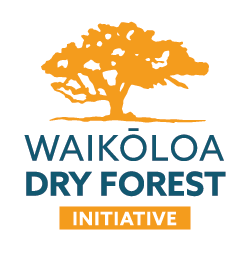
Organization: Waikōloa Dry Forest Initiative
Project Title: Wiliwili Legacy Initiative
Project Category: Urban and Community Forestry Technology Tools, Education & Public Outreach, Tree Planting & Tree Care
Location: Hawaiʻi
Project Overview: This project aims to build upon existing efforts of the Waikōloa Dry Forest Initiative to provide native wiliwili trees to the community by hosting tree giveaways, producing and disseminating tree care information, and establishing an online system for mapping and tracking these trees in the region of Waikōloa. This project was inspired by the ‘Ōhi’a Legacy Initiative in place on Oahu and aims to celebrate and promote wiliwili trees in a similar manner. In partnership with the STEM coordinator and teachers at Waikōloa Elementary and Middle School, local students will be involved in this project to provide an opportunity for them to use technology to develop an online application that tracks the real-world impacts of native wiliwili planting in the community.
About: The mission of the Waikōloa Dry Forest Initiative is to preserve and share the rich cultural heritage of Hawai’i through sustainable practices, empowering community members with ancestral knowledge and fostering personal and cultural values.
Visit Their Website
|
|
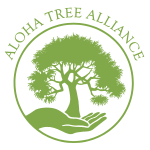
Organization: Aloha Tree Alliance
Project Title: Native plant nursery to promote sustainable urban reforestation
Project Category: Tree Planting & Tree Care
Location: Oʻahu
Project Overview: Aloha Tree Alliance (ATA) has been working to restore the Kuli`ou`ou watershed, a critical source of water for Honolulu utilizing traditional Hawaiian forest management techniques such as kipuka (small, controlled restoration areas) methods that engender long-term ecological resilience and improved forestry stewardship. Progress has been limited by the limited availability of native plants within local nurseries. The project will build a 960 sq-foot nursery within the Kamilo Nui Valley in Hawaii Kai to provide a sustainable supply of native plants for ATA’s reforestation efforts and the community. The project will also offer a local green workforce development opportunity by creating a new manager position for the nursery.
About: The mission of the Aloha Tree Alliance (ATA) is to mitigate climate change and protect Oahu’s watersheds by advancing resilient urban forests. ATA has focused on partnering with local community, forest service, and forestry experts to revitalize the Kuli`ou`ou Ridge Trail and watershed, an area that has been severely impacted by climate change, as well as invasive guava and ironwood trees.
Visit Their Website
|
|
Organization: Mahana Gardens
Project Title: The Banyan at Mahana – a Molokaʻi arboretum
Project Category: Education & Public Outreach, Tree Planting & Tree Care
Location: Molokaʻi
Project Overview: This is the first phase in the creation of a safe and accessible space for Moloka`i residents to learn about the value and diversity of trees. By securing the tree canopy around the central banyan tree, community members can explore the nearby fruit orchard, walk the paths that showcase mature trees, and receive respite from the arid conditions experienced by much of west Moloka`i. In the process, people will be inspired to be good stewards to their own land and pursue careers in related professions.
About: Mahana Gardens is a tree nursery with infrastructure to support propagation, education, and the general enjoyment of nature. For decades it has been a destination for Moloka`i residents who want to plant trees and learn about tree care.
Visit Their Website
|
|
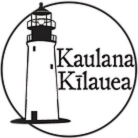
Organization: Kaulana Kīlauea
Project Title: Kīlauea Dispensary Park Beautification Project
Project Category: Education & Public Outreach, Tree Planting & Tree Care
Location: Kauaʻi
Project Overview: This project is focused on making one of Kīlauea’s only public green spaces (one of just two), more welcoming and usable for the public by creating shaded areas with native trees that were once abundant in the area, and educating the community about their cultural and historical importance through the creation and installation of interpretive signage.
About: Kaulana Kīlauea’s mission is to provide services, resources, and events that educate participants about the unique history of Kīlauea, Kauaʻi and/or promote multicultural unity within, but not limited to, the community of Kīlauea. Kaulana Kīlauea recently executed a stewardship agreement with the County of Kauaʻi to steward Kīlauea Dispensary Park.
Visit Their Website
|
|
Organization: Koali Niu
Project Title: Koali Niu Project
Project Category: Education & Public Outreach, Tree Planting & Tree Care
Location: Maui
Project Overview: The project involves clearing invasive plants, mainly African Tulip, hau, and bamboo from approximately three acres of historically significant ancient lo’i in Koali, Hana Maui, and reforesting following an agroforestry framework. The project includes planting native varieties of niu (coconut), ʻulu (breadfruit) kalo, and other regional fruit trees with the partnership with the community.
About: Koali Niu is a center that will provide the community with associated niu knowledge, planting material as well as become a living gene bank for the variety of Hawaiian coconut (niu) and breadfruit (ʻulu). The mission is co-developed with the guidance from Niu Now co-founder Indrajit Gunasekara.
|
|
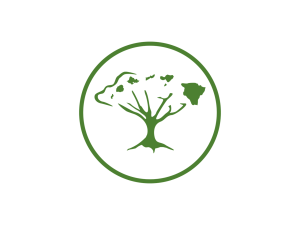 Organization: Lā Ho‘olulu Pae Moku / ReTree Hawaii Organization: Lā Ho‘olulu Pae Moku / ReTree Hawaii
Project Title: Lā Ho‘olulu Pae Moku Project
Projecy Category: Tree Planting & Tree Care
Location: Maui
Project Overview: The project centers on engaging Hawaii’s population, especially school children, in understanding the climate threats and taking steps to address them is the most effective way for the state to mitigate the challenges. The campaign month is November, because plants going into the ground then are more likely to receive rainfall and survive than other times of the year, but some organizations plant with us continuously throughout the year. The model is one of distributed self-service, with each planting site deciding what to plant, how many, how many volunteers to accept and on which date and time.
About: Lā Ho‘oulu Pae Moku / ReTree Hawaii was formed in late 2019 to organize a state-wide tree planting day on October 30, 2020 as part of Hawai‘i’s struggle to mitigate climate change. After the initial planting day, the participating organizations and individuals supported the continuation of the program.
Visit Their Website
|
|
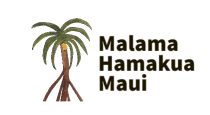 Organization: Malama Hāmākua Maui Organization: Malama Hāmākua Maui
Project Title: Hāmākualoa Community Reforesting
Project Category: Tree Planting & Tree Care
Location: Maui
Project Overview: The Hāmākualoa Community Reforesting project will return former agricultural lands (pineapple, mostly) to a state closer to what they were before the plantation era. The Hāmākualoa moku of Maui has been a rich area for hundreds of years and industrial farming had a cultural and ecological impact on the region. Through community involvement, the Hāmākualoa Open Space can be a lasting community and ecological asset by (among other things) removing invasive species and restoring native trees and shrubs.
About: Malama Hāmakua Maui (MHM) is a 501(c) (3) non-profit, incorporated in Hawaiʻi in 2016. The founders and board members are all local residents of Haiku and many have family roots going back many generations. MHM has partnered with Maui County to plan and help manage the future of the Hāmākualoa Open Space Preserve, located in Haiku. The vision is to restore the land and cultural uses of the Open Space.
Visit Their Website
|
2023
2023 Community Partners
|
 Organization: Protect and Preserve Hawaiʻi Organization: Protect and Preserve Hawaiʻi
Project Title: Mālama Niu Valley
Project Category: Education & Outreach
Location: ʻIli of Niu, Ahupua’a of Waikīkī, Oʻahu
Project Overview: This project works to restore the forest of Niu Valley located on the urban-wildlife interface on Honolulu and the Koʻolau mountain range. The site goal is to restore one acre per year, with PPH well on track currently accomplishing 5,000 sq ft of restoration each month with the help of community volunteers who participate in plot preparation, outplantings, invasive species removal, seed hikes, and more.
Visit their website.
|
|
 Organization: Hawaiʻi Land Trust Organization: Hawaiʻi Land Trust
Project Title: Hoʻola hou nā kumu laʻau o Hawaiʻi: Restoring Hawaiʻiʻs Native Forests
Project Category: Tree planting
Location: Ahupuaʻa of Waiheʻe, Maui; Ahupuaʻa of Kapaʻa Nui, Kou, Kamano, Mahukona, Hihiu, and Kaoma, Hawaiʻi
Project Overview: This community grant project will be integrated into the Hawaiʻi Land Trust’s (HILT) overall restoration and stewardship program, which is integrated into our education and volunteer programs. Indigenous and endemic trees which are appropriate to the area will be planted to improve the quality of habitat on HILT-owned preserves. The properties include HILT’s 17-acre Kīlauea Preserve on Kaua’i, the 277-acre Waihe’e Coastal Dunes and Wetlands Refuge on Maui, the 81-acre Nu’u Refuge on Maui, and the 500-acre Mahukona Preserve on Hawai’i Islands. Trees will be selected for their appropriateness based on their growth on property in the region, or their presence in the historical (pollen) record.
Visit their website.
|
|
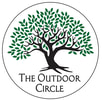 Organization: The Outdoor Circle Organization: The Outdoor Circle
Project Title: Banyan Drive Gall Wasp Treatment for Historic Banyan Trees
Project Category: Education and Outreach
Location: Ahupuaʻa of Waiākea, Hawaiʻi
Project Overview: The 50 historic banyan trees on Banyan Drive in Hilo were planted starting in 1933 by princesses, presidents, movie stars, explorers, and famous athletes, among others. An iconic image of Hawaii for locals and visitors alike, with the huge majority of hotel accommodations in Hilo accessed via Banyan Tree Drive, The majestic and awe-inspiring trees have come to symbolize the natural and scenic beauty of Hawaii, particularly the Big Island, and have been featured in many publications over the decades. Unfortunately, 47 of these trees have been attacked by the gall wasp and immediate funds are needed for treatment to try to save these trees. We also seek to enhance the experience of locals and visitors who come from around the world to enjoy their splendor in this iconic area of Hilo, mainly due to the aesthetics, biodiversity benefits and historical value they provide to the local community.
Visit their website.
|
|
Organization: Big Island Resource Conservation and Development
Project Title: Native Plants at Home: Connecting with the ‘Āina through Planting Pono
Project Category: Education and Outreach
Location: Ahupuaʻa of Waiākea, Hawaiʻi
Project Overview: The Big Island Invasive Species Council will host a series of events, including webinars, in-person trainings, and tree giveaways to encourage homeowners’ use of native and Pono plants. We aim to increase demand for locally-grown plants over imported plants in the retail market and incentivize the production of more supply of native plants; reduce importation of potential pests and diseases that can damage agriculture & watersheds; and increase the knowledge of, visibility, and enjoyment of native plants in our communities. Native plants are living beings that can provide a deeper connection to our island home – as part of the fabric that makes Hawaiʻi special, they should be an integral part of our own personal landscapes.
Visit their website.
|
|
 Organization: Aloha Tree Alliance Organization: Aloha Tree Alliance
Project Title: Kuli’ou’ou Ridge Trail Restoration Project
Project Category: Tree planting
Location: ʻIli of Kuliʻouʻou, Ahupuaʻa of Waikīkī, Oʻahu
Project Overview: In 2022-’23, ATA will plant an additional 550 native trees and plants, and nurture and monitor the 550 plants placed in the ground during the 2021-’22 season. Diligent maintenance–watering, weeding, and fertilizing–will help ensure plant survival, maximize tree growth, and establish the long-term sustainability of the forest. ATA will create natural barriers to address erosion issues on 15 additional trail cuts and repair existing steps on the steeper portion of the trail. Stewardship training for young adults and continuation of robust community management programs, including Aloha Friday Watering and Adopt-a-Kīpuka, will help to restore and maintain Kuliʻouʻou Ridge Trail into the future.
Visit their website.
|
|
Organization: Hawaii Local2030 Hub
Project Title: Ala Wai Watershed Collaboration Workshop Series
Project Category: Education & Outreach
Location: Ahupuaʻa of Waikīkī, Oʻahu
Project Overview: This project will facilitate 4 workshops over a one-year period with topics established via partner outreach: Storytelling, GIS, Data Collection, and Grant Collaboration. The first workshop will focus on grounding partners in their identities, which have led them to their sustainability work. Providing tools for partners to identify and share their personal narratives will help elucidate the rich history–natural and cultural–of the Ala Wai. In coordination with the more technical workshops, this series will support partners’ capacity to engage the broader community in their efforts, which includes multiple forest restoration projects that enhance native tree/species production in the watershed.
Visit their website.
|
|
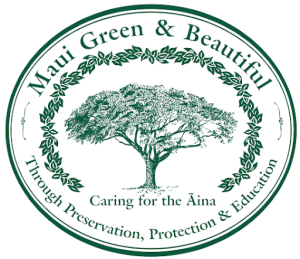 Organization: Maui Green and Beautiful Organization: Maui Green and Beautiful
Project Title: “Re-Shade Maui”-public & private awareness campaign
Project Category: Education & Outreach
Location: Island of Maui
Project Overview: Re-Shade Maui will focus on the importance of parking lot shade to fight climate change. Properly pruned & cared for trees create a true shade canopy that reduces the temperatures of heat islands such as parking lots which will benefit the community. Education outreach (including recognition of existing shady parking lots) to the management of shopping centers, condos, will reduce temperatures in areas of Maui creating a positive impact on climate change.
Visit their website.
|
|
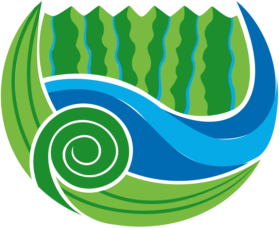 Organization: ʻOhuʻohu Koʻolau Inc. Organization: ʻOhuʻohu Koʻolau Inc.
Project Title: Carving Out Our Future: Growing stewards and healthy forests through the practice of kālai (traditional wood carving)
Project Category: Education & Outreach
Location: Island of Oʻahu
Project Overview: This project will work with Kaulunani’s Artist in Residence, Nalu Andrade (master carver) who will lead 4 carving workshops in urban forests with ‘ohana. Part 1: ‘ohana and Nalu will volunteer with an established Kaulunani partner to steward their forest site; Part 2: Nalu will teach how to carve mana ‘āi (baby’s 1st food dish) from invasive wood and he will facilitate discussions on mālama ʻāina, through the values of kūleana (responsibility), ‘ike kūpuna (ancestral wisdom), and laulima (collaboration). The workshops are a pilot project for a larger vision to plant native trees for each child born in Hawaiʻi while removing invasive trees for other carving projects.
Visit their website.
|
|
 Organization: Hawaiʻi Forest Institute Organization: Hawaiʻi Forest Institute
Project Title: Symphony of the Hawai’i Forest – Curriculum Development
Project Category: Education & Outreach
Location: Island of Oʻahu
Project Overview: The Symphony of the Hawai‘i Forests project integrates visual and media arts through the animations and art contest; performing arts through the music, hula, and storytelling; and curricula on forests for DOE. Students will be encouraged to explore topics through art, music, and dance. A hula about the Hawaiian forests created specifically for this project will be taught to students prior to the concert and will then be performed together at the performance.
Visit their website.
|
2022
2022 Community Partners
|
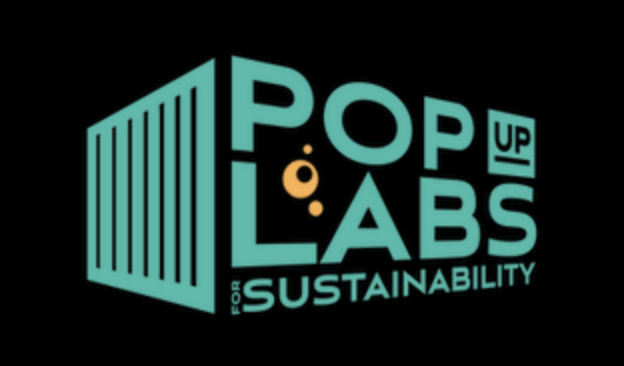
Organization: Pop Up Labs for Sustainability (PULS)
Project Title: Building the Next Generation of Urban Foresters
Category: Education & Outreach
Location: Oʻahu
Project Overview: The goal is to cultivate the next generation of urban foresters through education. PULS will bring our action-oriented unit, Become a Tree-Hugger, which merges STEAM/Sustainable learning, to 4 schools in the 2021-22 academic year. The result will be 200 urban forestry stewards and a suite of tools – a teaching manual & PULS-in-a-Box – to share with other island schools to scale up our impact.
The overarching objectives are to increase awareness of urban trees and their benefits to the O’ahu community by focusing on student education. Our approach is to provide a rigorous unit where students return to the lab, on average, four times for integrated lessons on tree ecology, tree health, tree ecosystem services, and tree conservation.
About: The mission of PULS is to bridge STEAM (science, technology, engineering, arts+design, and mathematics) and sustainable learning to help youth discover their potential in the field while inspiring commitment to protect our Earth among the next generation.
Visit Their Website
|
|
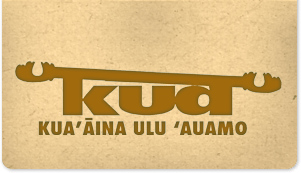
Organization: Kuaʻāina Ulu ʻAuamo (Kaʻōnohi Farms)
Project Title: Native Restoration
Category: Tree Planting
Location: Aiea, Hawaiʻi
Project Overview: Located in the moku of Ewa and the ahupua’a of Kalauao rests a 2 ½ acre kipuka amonst the sprawl of an urban jungle. Concrete neighbors include a major highway, acres of parking lot, and the second largest shopping mall in Hawai’i. These modern developments were built upon some of the most fertile and intensively cultivated lands on O’ahu. Hundreds of lo’i kalo (taro patches) and loko i’a (fishponds) once thrived here.
Today, these lands would be unrecognizable to the people of old who first made this place home.
The goal is to create opportunities for contributors to establish a connection to the place they live, create self worth, well-being and pride in aloha aina. East Ewa is densely developed with the rest of ewa moku rapidly catching up. With few spaces for community to access in the central side of `Oahu, this space and project is invaluable.
About: KUA is an innovative, community-based initiative for protecting, restoring and caring for Hawaiʻi. Our unique native species, ecosystems and island way of life in Hawaiʻi are deeply interconnected, and are at the heart of what makes these islands “home.”
Visit Their Website
|
|
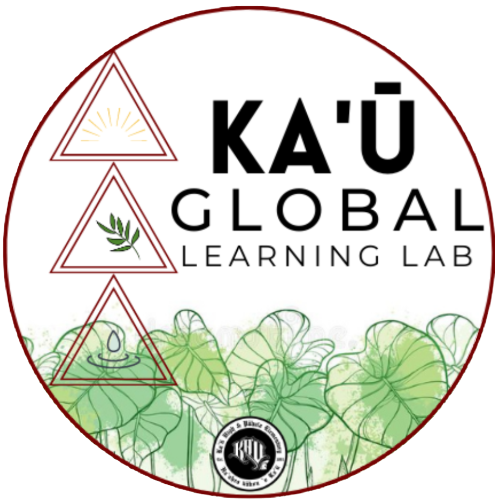
Organization: Kaʻū High & Pāhala Elementary School
Project Title: Kaʻū High School Agroforestry Project
Category: Tree Planting
Location: Pāhala, Hawaiʻi
Project Overview: Kaʻū High & Pāhala Elementary Schoolʻs AgHui is seeking to plant edible fruit trees including cacao, ʻulu (breadfruit), ʻohiʻaʻai (mountain apple), jackfruit, lychee, moringa, soursop, starfruit, and abiu on our 3.62 acre school farm. Through creating a food forest, we hope to increase food security in Kaʻū and create a living, learning laboratory for our teachers, students, and community members.
About: Kaʻū High & Pāhala Elementary School is a small, rural, K-12 school on Hawaiʻi Island. Beginning this year, we are launching our Academy for Agri-preneurship, which prepares students to be engaged community members who practice mālama ʻāina (conservation and sustainability) and contribute to the socio-economic resiliency of Kaʻū, Hawaiʻi, and the world.
Visit Their Website
|
|
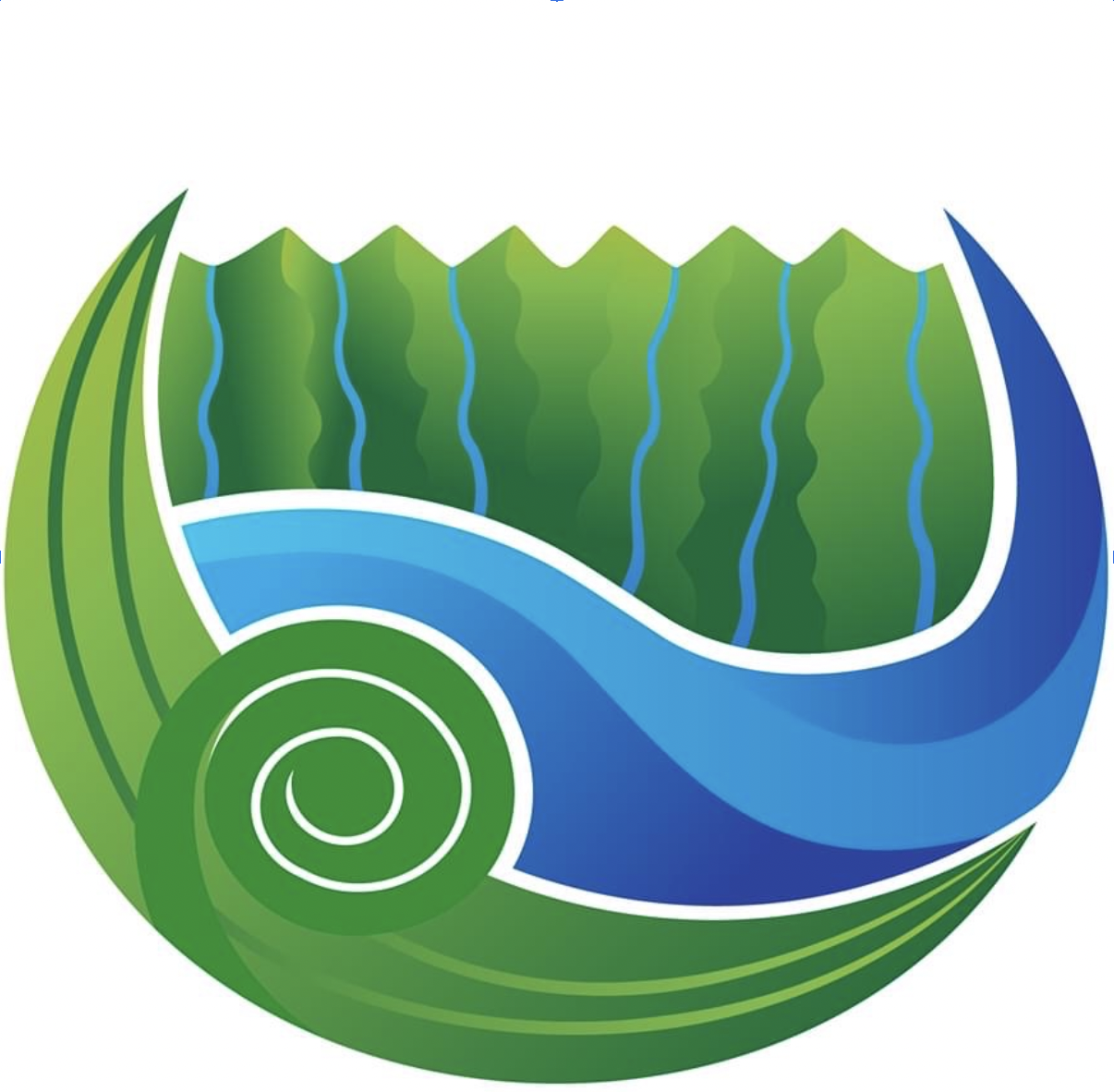
Organization: ʻOhu ʻOhu Koʻolau, Inc
Project Title: Community Engagement and Volunteer Support at Ala Mahamoe Urban Forest Restoration Site
Category: Education and Outreach
Location: Moanalua, Oʻahu
Project Overview: This project will support ongoing efforts to improve watershed health and recharge at the Ala Mahamoe community dryland forest restoration site in Moanalua. Education of the community and local students increase conservation knowledge, and hosted volunteer workdays allow for access to the urban-wildlands interface and will consist of planting native species, weeding, and watering.
Staff and volunteers will work to establish a variety of native Hawaiian plants. Support staff will visit with participating classrooms or organizations to explain the project and the benefits of such work in watershed protection. Education topics will include a discussion of native vs. non-native species and the role native plants play in overall watershed health; and identification of rare and threatened plants as well as common native species at the site. Additional hands-on activities for students will include creating plant and positive messaging signage for the Ala Mahamoe Restoration site and creating native seed balls to disperse in the restoration zone. The clay and soil mix have native seeds incorporated to contain layers of a forest (ground cover, shrubs, and tree). The clay in the seed balls protects the seeds from the heat of the sun and is unaffected by wind and heavy rains. An outdoor classroom event will also be conducted where students can place their signs and seed balls within the restoration site as well as get a hands-on learning experience with planting native trees. These activities will all work in sync with one another to progress the restoration of this community resource.
About: ‘Ohu ‘Ohu Ko‘olau, Inc. DBA: Koʻolau Watershed Foundation is the non-profit fiscal sponsor to the Ko‘olau Mountains Watershed Partnership (KMWP). ‘Ohu ‘Ohu Ko‘olau, Inc. works in collaboration with KMWP to foster landowner collaboration and perpetuate the water resources of O‘ahu by protecting and enhancing the forests of the Ko‘olau Mountains and its invaluable native ecosystems.
Visit Their Website
|
|
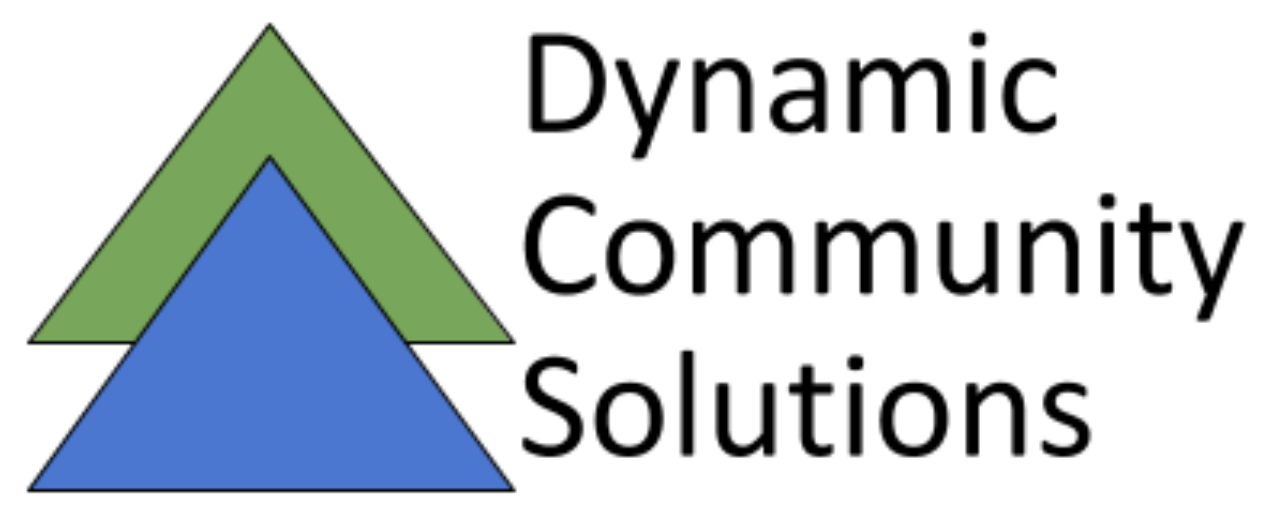
Organization: Dynamic Community Solutions
Project Title: Inaugural Farming Plot of the Puʻuhonua o Waiʻanae Ma Uka Farm Village
Category: Tree Planting
Location: Waeʻanae, Oʻahu
Project Overview: Puʻuhonua o Waiʻanae Ma Uka (POWMU) Farm Village is a planned 20-acre farm and group living facility that will be the permanent home for up to 250 currently houseless residents of the Puʻuhonua o Waiʻanae (POW) community near Waiʻanae Boat Harbor. The proposed project is for tree plantings of niu, maiʻa, ʻulu, mīkana (papaya), and edible fig along the ma uka/northern perimeter of the farm village. This project inaugurates the Village’s agroforestry and farming activities and is intended to support residents’ food security, contributing to their overall nutrition, health and connection to culturally important trees and crops.
About: POWMU is led by the nonprofit Dynamic Community Solutions, created by and for residents using a “community first” model, where relationships form the basis for healing, hope and housing transition. With more than 75% of residents identifying as Native Hawaiian, the Farm Village blends traditions of communal living with innovative approaches to affordable housing, services, and community.
Visit Their Website
|
|
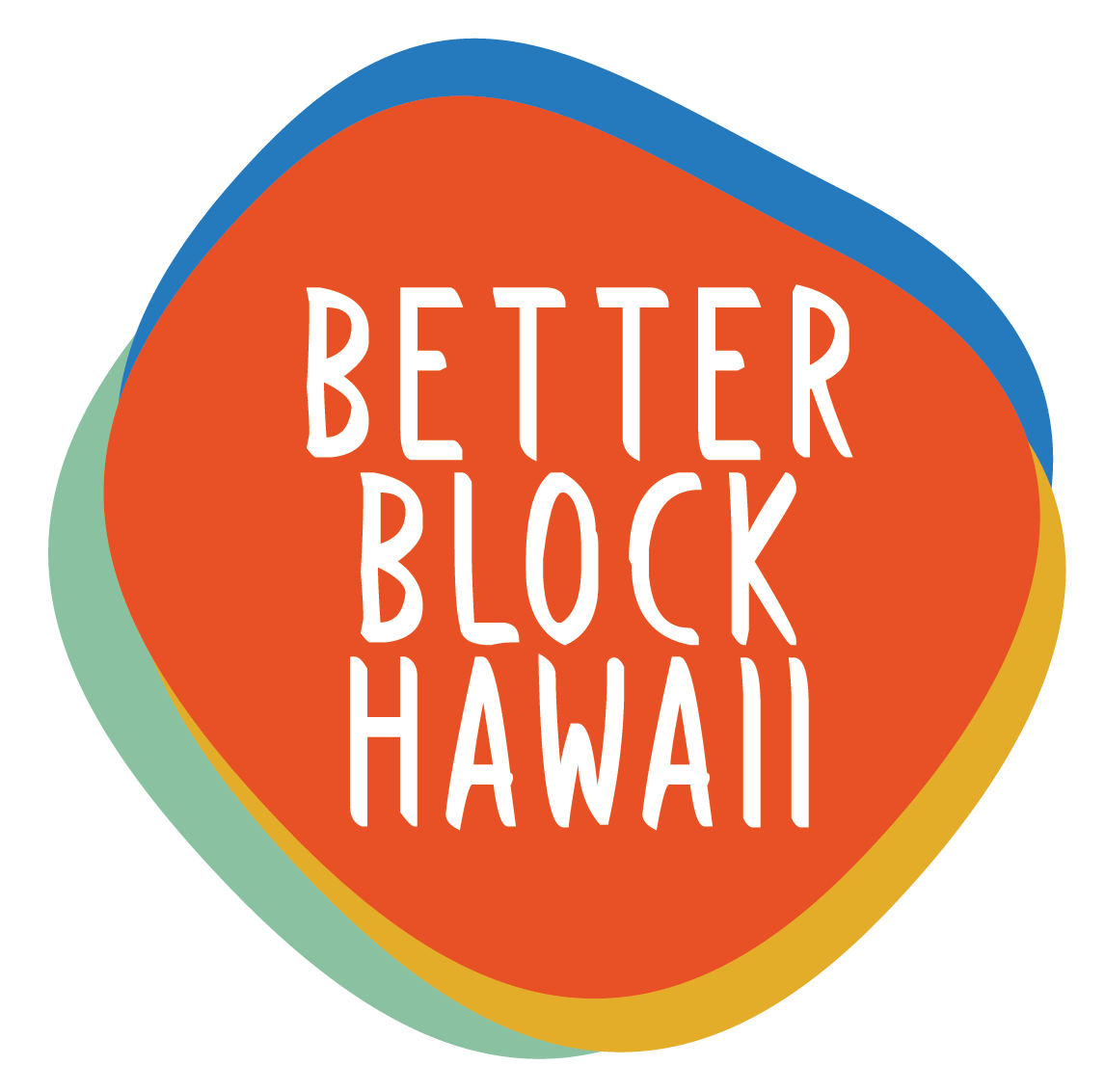
Organization: Better Block Hawaiʻi
Project Title: Trees for Kalihi
Category: Education and Outreach
Location: Kalihi, Oʻahu
Project Overview: “Trees for Kalihi” is a community-driven effort that will take place in the Kalihi neighborhood. With less than 20% of tree canopy, Kalihi has the lowest level of tree canopy on Oahu. Due in part to its lack of greenery, this area is also one of the hottest neighborhoods on island, with an afternoon heat index of over 97 degrees Fahrenheit. Through the installation of street trees and public seating, this project aims to increase the health and wellbeing for all who live in or visit the area by increasing exposure to trees and public artwork, and providing opportunities for social interaction. This project also supports equity and access goals by focusing its activities in an underserved neighborhood.
Additionally, through community outreach, this project aims to raise awareness and interest for planting more trees in the Kalihi neighborhood. The highly visible tree planters and seating will be painted and branded “Trees For Kalihi”, along with matching social media accounts, to demonstrate demand for trees in this area.
About: Better Block Hawaiʻi is a 501(c)3 non-profit Community Development Organization. By facilitating “light, quick, cheap” placemaking projects, we educate and equip communities to reshape public spaces to promote healthy and vibrant neighborhoods. Most recently, we worked with community partners in Kaimuki to install three “parklets” to support local businesses and create more usable public space.
Visit Their Website
|
|
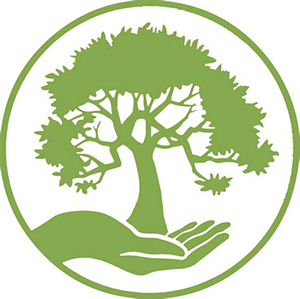 Organization: Aloha Tree Alliance Organization: Aloha Tree Alliance
Project Title: Kuliʻouʻou Trail Restoration
Category: Tree Planting
Location: East Honolulu, Oʻahu
Project Overview: The Kuliʻouʻou trail suffers from degradation due to invasive species, erosion, heavy use, and lack of state funding. ATA will bring together East Oahu residents, environmental groups, schools and tourists to plant trees, reduce runoff, increase diversity and build resilience in the face of climate change. Objectives:
- Promote health and well being by providing opportunities for the East Oahu community and Kuliʻouʻou trail users to plant native plants and trees and connect with the ʻāina in this beautiful ahupuaʻa.
- Provide educational opportunities regarding reforestation, sustainable hiking practices, and caring for communities impacted by overuse and misuse of State lands adjacent to the Kuliʻouʻou community
- To address trail erosion caused by hikers cutting through switchbacks by placing appropriate natural barriers and restoring native ground cover and trees along the trail.
- Foster stewardship of the site by engaging the community and trail users.
About: Aloha Tree Alliance (ATA) is a 501(c)3 non-profit whose mission is to preserve and restore Hawaii’s forests for future generations through native tree planting and environmental education. ATA aims to reconnect people with nature through aloha and malama ʻāina. Its first restoration project at Kuliʻouʻou Ridge trail will benefit East Honolulu forests, Maunalua Bay, and the Kuliʻouʻou community.
Visit Their Website
|
|

Organization: Hui o Hoʻohonua
Project Title: Hui Alaloa – Creating New Pathways for Abundance in the ʻEwa Moku
Category: Tree Planting (Level II)
Location: ʻEwa Moku, Oʻahu
Project Overview: Honoring traditional Hawaiian systems of resource management, this demonstration project brings together community partners in a single biocultural restoration project. This project seeks to create a demonstration agroforestry project based along a quarter mile stretch of the Pearl Harbor Historic Trail (Puʻuloa Alaloa) based on our project pillars: community activation (via community work days, education, school-based leadership opportunities and cultural mural project), placemaking (enhancing community identity and public spaces, decolonizing place names and integrating Hawaiian moʻolelo and manaʻo), equitable food security (establishing a place with access to food and culturally relevant plants for community use) and mobility (providing improved safety and public use of the Pearl Harbor Bike Path for walking, biking and related wellness activities, providing a sustainable transportation alternative for those commuting to jobs and schools in the area).
About: Hui o Hoʻohonua (HOH808) is a 501 (c)3 non-profit created by members of the ʻEwa community. The primary mission is to end the perpetuation of historical trauma to the land, water, and people in the ʻEwa Moku on Oʻahu. The development of our mission was motivated by our observations of environmental neglect and pollution in Pearl Harbor (Puʻuloa), as well as the social needs of the people who live in the surrounding moku.
Visit Their Website
|
|
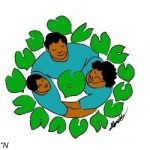 Organization: Kōkua Kalihi Valley Comprehensive Family Services (KKV) Organization: Kōkua Kalihi Valley Comprehensive Family Services (KKV)
Project Title: Land Accountability to Our Ancestors
Category: Education and Outreach (Level II)
Location: The ahupuaʻa of Kalihi, Kona moku, Oʻahu
Project Overview: Land Accountability for Our Ancestors is a two-year project to Promote the Role of Urban and Community Forestry in Human Health and Wellness. The project will be led by Kōkua Kalihi Valley Comprehensive Family Services (KKV), a federally qualified health center (FQHC), and The Kohala Center (TKC), a community-based center for research, conservation, and education. KKV is a Nontraditional Urban Community Forestry organization, serving a High Potential Community. The project develops a research partnership with TEK experts knowledgeable in content and practice to solidify a set of native forest management practices and train forest stewards with the intention to impact national and international forest management practices. Activities include multi-day forestry workshops, convenings, and forestry workdays with staff, partners, and community members. Products created and distributed through conference participation, PDF documents, PowerPoint reports, Social Media, community engagement, and flyers, include Best Management Practices for indigenous forestry stewardship, training and educational curriculum, videos and plant products. Translations of key documents will be made in several languages including Spanish, Chuukese, Marshallese, and Ilocano, expanding the accessibility of the products developed through this project.
About: Kōkua Kalihi Valley Comprehensive Family Services (KKV) has been serving the low-income community of Kalihi Valley since 1972 and became a FQHC in 1989. With nine service sites, including a 100-acre nature preserve Hoʻoulu ‘Āina, KKV provides primary care including medical, dental and behavioral, Elder Care, Maternal Child Health programs, and a range of community-engagement programs focused on Social Determinants of Health.
Visit Their Website
|

Organization: Ke Kula Nui o Waimānalo
Project Title: Ulu Pono MahiʻĀina 2.0
Category: Education & Outreach (Level II)
Location: The ahupuaʻa of Waimānalo, Koolaupoko moku, Oʻahu
Project Overview: The vision for Ulu Pono MahiʻĀina: Indigenous, Place-Based Training Program restoring Food Sovereignty + Growing Community holds space for the convergence of all aspects of societal function within the realm of a subsistence economy and with a cultivated and deliberate return of power to the people, especially the most vulnerable of our communities.
About: We are Ke Kula Nui O Waimānalo. Our vision is to Kukulu Kaiaulu- Build Community. Our mission is to provide a community of practice through collaboration of Kanaka to promote strong and healthy ahupuaʻa. We provide numerous programs in our community, including MALAMA Aquaponics, Waimanalo Limu Hui, Waimanalo Pono Research Hui, Project P INK, Ola Kino, OLA- Opio Leadership Academy, Hui Hua Moa and others. Our premier program MALAMA Aquaponics has operated since 2009.
Visit Their Website
|
Year of Our Community Forests Partners
Completed Partner Projects
2025
|
 Organization: Earth RM Organization: Earth RM
Project Title: Soil Microscopy Summer — Exploring the Microscopic World of a Community Agroforest
Project Category: Year of Our Community Forests
Location: Ahupua’a of Pueo, Hawaiʻi Island
Project Overview: EarthRM is dedicated to healing land through native plants and microbes. In this project, they will host a series of community events in collaboration with OK Farms Agroforest wherein they invite the community to celebrate the incredible biodiversity of regenerative agroforestry! This will put a spotlight on community forest biodiversity beneath the soil by inviting people of all ages and experience levels to learn the basics of soil microscopy. Events will include an agroforest tour, soil sample collection, a special demonstration of fluorescence microscopy which will be featured at our community lab space, the basics of microscope setup and use, microscope slide preparation, and how to assess soil health. Events will include a microscope raffle and the project will support microscopes for an open access community soil microscopy center.
Visit their website.
|
|
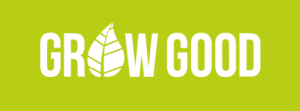 Organization: Grow Good Hawaiʻi Organization: Grow Good Hawaiʻi
Project Title: Re-imagining Wao Kānaka: Painting the Urban Forest as if it’s already there
Project Category: Year of Our Community Forests
Location: Ahupuaʻa of Honolulu, Oʻahu
Project Overview: “Re-imagining Wao Kānaka” will help the community visualize the urban forest as if it already fully exists. Using the French painting technique of Trompe-l’œil (a highly realistic optical illusion of three-dimensional space and objects on a two-dimensional surface) we will paint a large photo-realistic mural of a natural forest enveloping a building in a prominent downtown Honolulu location. Passersby will be “tricked” into thinking that the urban forest already exists. This will help them to imagine what urban Honolulu could look like a city nestled within a forest. Ultimately, populating their minds with this vision could lead to greater value being placed on creating actual urban forests. A companion website will provide opportunities for deeper education and engagement. As a bold and innovative statement in a landmark location, this mural will be a visual kipuka that attracts greater attention to the celebration of the Year of Our Community Forests.
Visit their website.
|
|
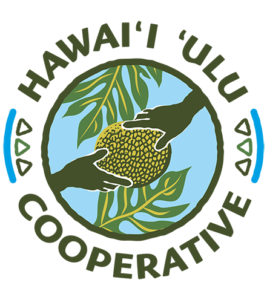 Organization: Hawaiʻi ʻUlu Producers Cooperative Organization: Hawaiʻi ʻUlu Producers Cooperative
Project Title: Celebrating ‘Ulu – Hawaiʻi’s Tree of Life – Through In-Person Outreach and Community Engagement to Uplift Agroforests
Project Category: Year of Our Community Forests
Location: kō Hawaiʻi pae ʻāina (statewide), based in the ahupuaʻa of Keauhou, Hawaiʻi Island
Project Overview: Our project will celebrate the Year of Our Community Forests by delivering effective and engaging, in-person education about ʻulu (breadfruit), one of Hawaiʻi’s most quintessential agroforestry crops, through a series of community events across the pae ʻaina. Through our expansive network of 184 farmer-members located on four islands and deep community partnerships, we aim to offer a unique educational initiative to spread awareness about the many benefits that this indigenous tree crop offers to the diverse communities of Hawaiʻi – whether located on farms or in backyards, neighborhoods, parks, beaches and even urban streets.
Visit their websites:
Ulu Cooperative
Eat Breadfruit
|
|
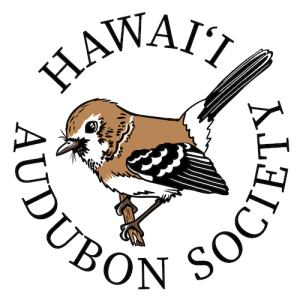 Organization: Hawaiʻi Audubon Society Organization: Hawaiʻi Audubon Society
Project Title: Urban Trees Connect Honolulu Mauka to Makai
Project Category: Year of Our Community Forests
Location: Ahupuaʻa from Honouliuli to Waimānalo, Oʻahu
Project Overview: This project is a collaboration between Hawaiʻi Audubon Society and key partners, Aloha Arborist Association, U.S. Fish and Wildlife Service, Hawaiʻi State Department of Land and Natural Resources, Pacific Rim Conservation, Hui Manu o Kū, and Kapi‘olani Community College, to highlight the importance of well-maintained urban trees and their role in enhancing the protection of White Terns (Gygis alba) breeding in Honolulu’s urban forest. The proposed project aims to update and expand training on the Best Management Practices (BMPs) for tree maintenance in areas utilized by breeding White Terns, fostering appreciation and support for the conservation of Honolulu’s community forests and ensuring a thriving urban canopy.
Visit their website.
|
|
 Organization: Healthy Climate Communities Organization: Healthy Climate Communities
Project Title: Weaving Together Our Community Stories
Project Category: Year of Our Community Forests
Location: Ahupuaʻa of Kailua, Oʻahu
Project Overview: 2025 is not only the “Year of Our Community Forests” but it is also the 10 year anniversary since our nonprofit, Healthy Climate Communities, planted our first tree on Pu’u o ‘Ehu—the watershed for Hāmākua Marsh Wildlife Sanctuary! Since then, thousands of native plants and trees have been planted and cared for by the many students and volunteers visiting since 2015. Our mission is focused on education and action: specifically, climate resilience education and community action. This year, we wish to celebrate with others the “Year of Our Community Forests”. Similar to Kaulunani, our nonprofit will celebrate, raise awareness, and engage diverse community members around the vital role of our community forests. This project aims to increase access to the cultural connections our community forest provides. Hala weaving with Kumu Kāʻeo Izon; Hui ‘Ala Hīnano and Waianuhea o ka Pua Hala. In the spirit of reciprocity, these hala weaving workshops will honor the stewardship, craft, and interconnections people have with the beautiful native species found in “Our Community Forests” and Puʻu o Ehu (the dryland forest at Hāmākua Marsh Wildlife Sanctuary).
Visit their website
|
|
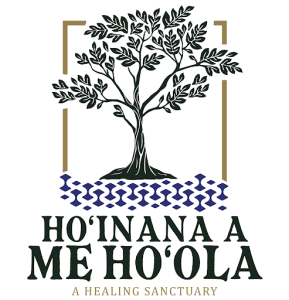 Organization: Ho’inana A Me Ho’ola Corporation Organization: Ho’inana A Me Ho’ola Corporation
Project Title: Queens of the Canopy
Project Category: Year of Our Community Forests
Location: Ahupuaʻa of Lualualei, Oʻahu
Project Overview: In celebration of Hawaii’s “Year of our Community Forests” Ho’inana A Me Ho’ola, a Nanakuli ʻāina-based non-profit, will create a unique outreach and educational event that aligns with and attracts a new audience for urban forestry and promotes equity and justice. “The Queens of The Canopy” will be a drag show that serves as a bold and dynamic platform to honor the beauty, resilience, and cultural significance of native and Polynesian introduced trees featured in the urban environment. By blending the artistry of drag with the importance of urban forestry, this event will be the first of its kind in showcasing the critical role trees play in cooling our cities, improving air quality, and fostering a sense of well-being and interconnectedness. Through creative individual performances and storytelling, we will engage a diverse and previously untapped audience, inspiring a deeper appreciation for native forests and the urgent need to protect and expand vital urban ecosystems.
Visit their website.
|
|
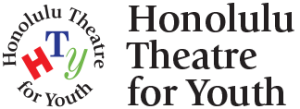 Organization: Honolulu Theater For Youth Organization: Honolulu Theater For Youth
Project Title: The Tiny Tree: Planting Seeds of Curiosity Through Drama
Project Category: Year of Our Community Forests
Location: Ahupuaʻa of Honolulu, Oʻahu
Project Overview: This year, Honolulu Theatre for Youth (HTY) will tour The Tiny Tree, a musical for young audiences created locally and performed by their professional company to preschools, summer fun programs, libraries, community centers, special community forest events and bring in schools and families for a two- week run at our 300 seat theatre in downtown Honolulu. With an expected reach of 7,000-10,000 young people the program will be a dynamic platform to include Hawaii’s youngest keiki and their families in this celebration.
Visit their website.
|
|
Organization: Kauaʻi Council of the Association of Hawaiian Civic Clubs
Project Title: Mele Pū: Cultivating Mele of The Forest
Project Category: Year of Our Community Forests
Location: Ahupuaʻa of Waimea, Kauaʻi; Ahupuaʻa of Keauhou, Hawaiʻi; Ahupuaʻa of Kamoku, Lānaʻi
Project Overview: Mele Pū: Cultivating Mele of The Forest is an immersive Hawaiian music experience where curated Hawaiian forest-centric songs are taught, analyzed and sung together by all participants. Hawaiian forest environments are celebrated in countless mele underscoring the profound connections between kanaka (people), mele (Hawaiian songs), ʻāina (land), and mauli ola (health and well-being). Through interactive workshops, storytelling, and group singing of Hawaiian mele of the forest in unique natural and community landscapes, participants explore the cultural, ecological, and spiritual significance of trees, native species, and the elements. By fostering community and inspiring a deeper connection to Hawaiʻi’s ecosystems, Mele Pū: Cultivating Mele of The Forest promotes stewardship and celebrates the Year of Our Community Forests.
|
|
 Organization: Kōkua Hawaiʻi Foundation Field Trip Grant Program Organization: Kōkua Hawaiʻi Foundation Field Trip Grant Program
Project Title: Support for schools to visit community forest sites
Project Category: Year of Our Community Forests
Location: kō Hawaiʻi pae ʻāina (statewide)
Project Overview: The Kōkua Hawaiʻi Foundation Field Trip Grant Program helps bring students to outdoor sites where they can experience hands-on learning about Hawaiʻi’s environment. With support from the Kaulunani program, Kōkua Hawaiʻi Foundation will offer financial assistance to Hawaiʻi public schools (giving preference to Title 1 Schools) which otherwise could not afford to participate in environmental field trips to community forest sites. Most field trip locations provide hands-on learning experiences for students grades K-12 and offer educational tours that can be customized to any grade level.
Visit their website
|
|
 Organization: Liko Nā Pilina Hybrid Ecosystems Project Organization: Liko Nā Pilina Hybrid Ecosystems Project
Project Title:Engaging with the Lowland Wet Forests of East Hawaiʻi Island
Project Category: Year of Our Community Forests
Location: Waiākea, Hawaiʻi
Project Overview: Liko Nā Pilina is a long-term hybrid forest restoration project located in Keaukaha that aims to establish a functional forest with native and non-invasive introduced plants that is resilient against the many invasive species we deal with in the lowland wet forests of east Hawaiʻi island. Now that we have tested the effectiveness of this restoration approach, we want to reach out to more landowners in Keaukaha and across Hawaiʻi to provide guidance on forest restoration in a way that meets their needs and is accessible. This includes offering a variety of opportunities to engage with ʻāina such as familiarizing community members of all ages with plants they can grow themselves and equipping the community with trainings and resources to combat invasive species, particularly Queensland Longhorn Beetle.
Visit their website
|
|
 Organization: Mālama Learning Center Organization: Mālama Learning Center
Project Title: Cultivating A Niu Vision
Project Category: Year of Our Community Forests
Location: Molokaʻi, multiple locations
Project Overview: Cultivating a Niu Vision on Molokaʻi is part of a community-driven initiative dedicated to safeguarding the unique niu (coconut palm) varieties of the island by empowering Molokaʻi students and teachers through education and engaging them in hands-on activities like establishing niu nurseries, planting and caring for trees in community spaces, and creating educational outreach materials that promote the health and cultural benefits of niu. While the imminent threat of the Coconut Rhinoceros Beetle looms large, proactive measures to adequately protect Molokaʻi’s treasured niu groves are lacking. This project seeks to change this by mobilizing community action and documenting these efforts through a professionally produced video aired statewide on the “Outside Hawaiʻi” television program, aligning with the Year of Our Community Forests initiative.
Visit their website
|
|
 Organization: Maui Green and Beautiful Organization: Maui Green and Beautiful
Project Title: Mālama the Trees – Our Community Forest
Project Category: Year of Our Community Forests
Location: Moku of Wailuku, Maui
Project Overview: “Mālama the Trees – Our Community Forest” is a two-day event held in Fall 2025 that will host youth and community attendees at the University of Hawaiʻi Maui Campus to celebrate the state’s Year of Our Community Forest proclamation. This event is being created to bring youth and community members together to connect to the importance of the community forest, where we live, learn, work, play, and share our knowledge. This project holds intentions to learn from the community, including their concerns and connections about trees. Additionally, the project will build awareness about how trees can make communities better, and how to value and “speak up” for trees. That might include voicing support for more trees to be planted and properly pruned, and sharing about their benefits like reducing the effects of climate change, saving energy, and more!
Visit their website.
|
|
 Organization: Maui Nui Botanical Gardens Inc. Organization: Maui Nui Botanical Gardens Inc.
Project Title: Lā ʻUlu Breadfruit Day 2025
Project Category: Year of Our Community Forests
Location: Ahupuaʻa of Wailuku, Maui
Project Overview: The 2025 Lā ʻUlu (Breadfruit Day) at Maui Nui Botanical Gardens is a free event to celebrate Pacific agroforestry, the history of ʻulu in Hawaiʻi, and ʻulu as a modern ingredient in home cooking. The event brings together Hawaiian researchers, farmers, ethnobotanists, chefs, and food producers to share their work with ‘ulu. In 2025 the event will celebrate the Year of Our Community Forests by including special presentations to show how different Polynesian and Micronesian communities incorporate ʻulu trees into their neighborhoods.
Visit their website.
|
|
Organization: Niu Doc LLC (operating as “Niu Forever”)
Project Title: Niu Forever – Community Documentary Screening Series
Project Category: Year of Our Community Forests
Location: Ahupuaʻa of Wai’anae and Honouliuli, Oʻahu; Ahupuaʻa of Hoʻolehua, Moloka’i; Ahupuaʻa of Kawaipapa, Maui
Project Overview: This project will celebrate the Year of Our Community Forests with a focus on the niu, or coconut palm, by organizing a series of free, educational screening events for community members on multiple islands to view the hour-long documentary film “Niu Forever” and engage in discussions with the Indigenous niu experts featured in the film. The documentary tells the story of Niu Now, a grassroots organization based in O’ahu, dedicated to this Tree of Life through their work planting uluniu (traditional coconut groves) and sharing their knowledge of the vital role niu plays in food sovereignty, cultural rejuvenation and conservation in Hawai‘i. The screenings are intended to open dialogue with community members about how they can engage with the niu themselves, to promote understanding of niu as a food tree rather than an ornamental plant, and to educate people about the ever-evolving threat of tree damage from the invasive Coconut Rhinoceros Beetle.
Visit their website.
|
|
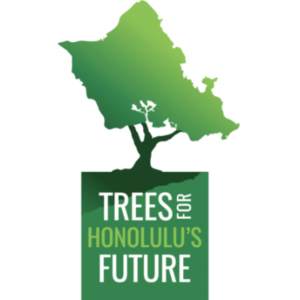 Organization: Trees for Honolulu’s Future Organization: Trees for Honolulu’s Future
Project Title: Kumulāʻau – play, learn, and love Hawaiʻi’s trees
Project Category: Year of Our Community Forests
Location: Multiple locations across Hawaiʻi, Maui, Oʻahu, and Kauaʻi
Project Overview: Edutainment makes learning fun and is an easy entry point into a variety of subject matter. Kumulāʻau is a card game that ENGAGES keiki through kūpuna, fosters public AWARENESS, and TEACHES about Hawai’i trees, the threats they face, and how they can not simply survive, but thrive. With this already developed game, TFHF and partners will amplify the message about the Year of Our Community Forest in 2025 and beyond.
Visit their website.
|
|
 Organization: Wahine Freelance Alliance Organization: Wahine Freelance Alliance
Project Title: Roots of Connection: Empowering Keiki to Celebrate Their Community Forests Through Animation & Storytelling
Project Category: Year of Our Community Forests
Location: Schools on Oʻahu, virtually with schools across the pae ʻāina
Project Overview: Our project aims to inspire the next generation of environmental storytellers by equipping Hawaiʻi’s keiki with the tools and skills to explore and share their connections to community forests through a Community Forests Illustration Library and an Animation & Storytelling Curriculum.
Visit their website
|
Multi-year Partners
Open Partner Projects
Read 2024-2025 highlights from multi-year partners.
|
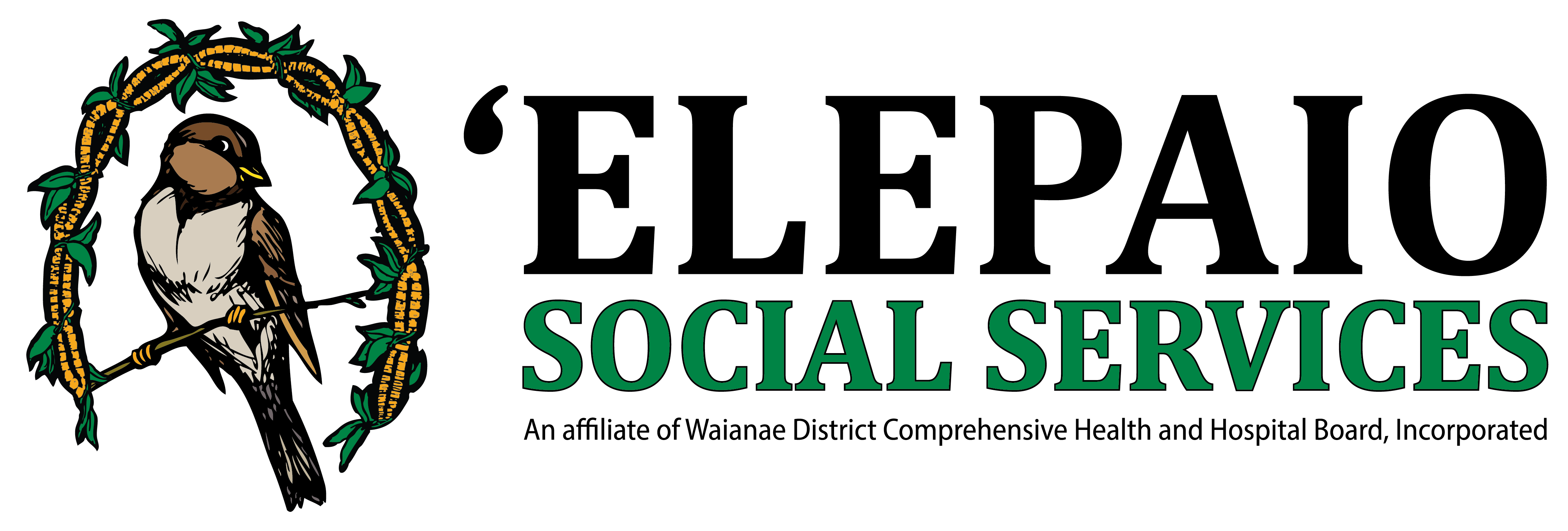 Organization: ʻElepaio Social Services Organization: ʻElepaio Social Services
Project Title: Aʻo Pulapula Cultural Agroforestry Nursery Project
Project Category: Education and Outreach, Food Security, Capacity and Training
Location: Waiʻanae, Mākaha, Nānākuli (Oʻahu), Ualapuʻe, Hoʻolehua (Molokaʻi)
Project Overview: The Aʻo Pulapula Cultural Agroforestry Nursery Project will establish a community tree nursery and host education and outreach events to serve communities in Waiʻanae, Mākaha, Nānākuli, and Molokaʻi. The project will build community capacity to care for and propagate Indigenous trees by supporting the (re)establishment of uluniu, coconut groves, in partnership with caretakers. On Molokaʻi, a separate In situ Niu Nursery will be established from seed collected from the island.
About: ʻElepaio Social Services (ESS) engages in large-scale initiatives like food distributions and manages impactful programs such as the Waianae Ohana Produce Prescription Program and Food Subscription Program. Our beneficiaries include those directly impacted by food insecurity, social determinants of health, and climate change. ESS is a leader in local cultural agroforestry movements, collaborating with partners to affirm the importance of niu, prioritizing Hawaiian cultural revitalization, ecological conservation, and food security.
|
|
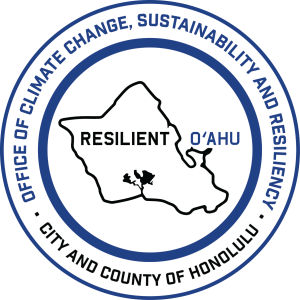 Organization: City and County of Honolulu Resilience Office Organization: City and County of Honolulu Resilience Office
Project Title: Updating Honolulu Standards, Procedures, and Ordinances for Urban and Community Forestry
Project Category: Policy and Ordinance
Location: Oʻahu
Project Overview: This project will (1) review and evaluate the City’s existing tree standards and regulations; and (2) recommend updates and improvements towards effective and equitable maintenance and growth of the community forest, which is essential for ecosystem health, community wellbeing and adaptation to climate change impacts. Funding will support contracted policy and design technical work, stakeholder and community engagement, and development of outreach and communications materials.
About: Established by O‘ahu voters in 2016 by City Charter amendment, the Mayor’s Office of Climate Change, Sustainability and Resiliency (CCSR) works to protect and improve the lives of O‘ahu residents by increasing community resilience in the face of challenge and change. CCSR tracks climate change science and impacts, and coordinates City projects and programs that create a more equitable, thriving, and climate-ready island home.
|
|
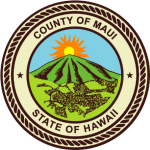 Organization: County of Maui Department of Management Organization: County of Maui Department of Management
Project Title: Maui Urban Forest Management Plan (UFMP) – Building Capacity and Partnerships and Advancing Equity in Community Forestry
Project Category: Education and Outreach, Management Plan
Location: Island of Maui
Project Overview: This project will develop the first urban forest management plan for the island of Maui, and engage community groups through the planning process. The UFMP will be a road map for managing & growing Maui’s urban forest. Led by a diverse team of forestry & engagement specialists, Maui County departments & community groups, the project will build capacity, advance equity and justice, and build partnerships and community involvement around urban forestry. Developing the UFMP will help Maui County understand the current urban forest, establish canopy cover and planting goals, and create a game plan to achieve these goals.
About: The County of Maui Department of Management (DOM) plays a role in supervising & managing the executive branch of County government. DOM is influential in annual budget preparation, developing standards of administrative practices for all departments, & County-wide capital improvement project coordination. For this project, the DOM will work closely with County of Maui departments that play a role in managing the urban forest, including Parks and Recreation, Planning, Public Works, and Agriculture.
|
|
 Organization: Hiki Ola Organization: Hiki Ola
Project Title: Ola i ka ʻĀina
Project Category: Education and Outreach
Location: Kealakekua Mountain Reserve, South Kona, Hawaiʻi Island
Project Overview: Ola i ka ʻĀina (Life from the Land) connects learners with the ʻāina and culture through native Hawaiian forest restoration. The Kaulunani funding will allow students to learn about and actively engage in the valuable reforestation efforts taking place in their community as an added enhancement to Hiki Ola’s Conservation Stewardship Program contract from the Natural Resources Conservation Service.
About: Hiki Ola strives to connect learners with ʻāina and culture, targeting young learners to build knowledge about native forest ecosystems and ultimately spark interest within the youth to become the next generation of culturally grounded stewards and decision makers for our beloved ʻāina. Since most of Hawaiʻi Island’s native forests are privately owned and inaccessible to the public, Hiki Ola prioritizes the youth learning about our forests through ʻāina- and place-based experiences.
|
|
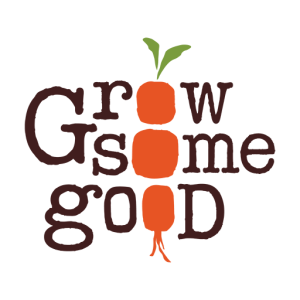 Organization: Grow Some Good Organization: Grow Some Good
Project Title: Nā Māla Kaiāulu: Cultivating Resilient Communities through Agroforestry
Project Category: Education and Outreach, Food Security
Location: Kahului, Maui
Project Overview: Nā Māla Kaiāulu (NMK) is an innovative response to pressing local and global challenges, strategically addressing the need for sustainable local food production and the impacts of climate change on food systems and societal well-being. This project combines tree and understory food crop planting, community stewardship opportunities, ʻāina-based learning during school breaks, apprenticeship, and food distribution components. NMK strives to ensure that the benefits of sustainable urban agriculture are equitably distributed, creating a foundation for shared prosperity and well-being.
About: Since 2008, GSG has been dedicated to cultivating a healthy community by strengthening local agriculture, enhancing food security, and improving access to nutritious, affordable food. Our mission centers on fostering a resilient future by connecting people, especially youth, to sustainable agriculture, thereby supporting a healthy and vibrant community.
|
|
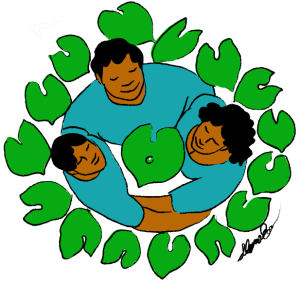 Organization: Kōkua Kalihi Valley Organization: Kōkua Kalihi Valley
Project Title: Ulu Koa: Aligning Generational Abundance & Ancestral Wholeness
Project Category: Tree Planting, Outreach and Education
Location: Kalihi, Oʻahu
Project Overview:Ulu Koa strengthens the resiliency of Kalihi’s land and communities by connecting urban land and people through Pacific Island tree-planting culture. Ulu Koa will 1) perpetuate multi-story Oceanic permaculture and out-planting endemic forest trees, traditional agroforestry plants, and lāʻau lapaʻau (native medicine plants), 2) teach and model community-engaged land management and forest stewardship techniques through cultural programming, and 3) connect the transformational stories of the health of land and people through indigenous evaluation.
About: KKV is a federally qualified health center that serves over 11,000 residents of Kalihi from nine locations, with primary care, social, community, and cultural services, including an array of clinical programs, a food hub, elder care and youth program, and a 100-acre mālama ‘āina program. KKV’s mission is to advance health, inspire healing, foster reconciliation, and celebrate abundance in the ahupuaʻa of Kalihi through strong relationships honoring culture and place.
|
|
 Organization: Mālama Hāmākua Maui Organization: Mālama Hāmākua Maui
Project Title: Restoring the Hamakualoa Coast through a Community lead Native Plant Project
Project Category: Tree Planting, Education and Outreach
Location: Hāmākualoa Open Space Preserve, Maui
Project Overview: This project will expand an existing native plant restoration and community engagement project by supporting a dedicated manager, planting food, and supporting a cultural practitioner to offer classes on-site. The Hāmākualoa Open Space Preserve, a Maui County property, provides a great opportunity to cultivate native and food plants as an educational site for a wide range of groups, and to ultimately become a collection forest.
About:Founded in 2016, Malama Hamakua Maui (MHM) is a 501c-3 non-profit organization, uniting cultural entities, community organizations, and Hamakua lineal descendants. Our mission centers on managing the Hamakua Open Space Park Preserve, a 318-acre stretch along Haiku’s coastline. Acquired by the County of Maui, this land is safeguarded for perpetual cultural, recreational, educational, and agricultural use.
|
|
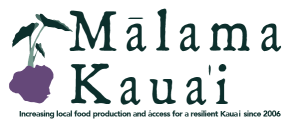 Organization: Mālama Kauaʻi Organization: Mālama Kauaʻi
Project Title: Village Harvest: Engaging and educating Kaua‘i residents in community forestry
Project Category: Education and Outreach, Food Security
Location: Kauaʻi
Project Overview:Through this project, Mālama Kaua‘i’s (MK) Village Harvest program will educate and engage Kaua‘i residents in growing and caring for community-based food trees. This will include educating and empowering residents, food systems, and tree professionals with gleaning, propagation, and tree care events. The project will also develop three food tree nurseries to expand on-site planting and community distribution.
About: Mālama Kauaʻi has focused on increasing local food production and access for a resilient Kaua‘i since 2006. We do this through a lens of resilience and sustainability, which leverages economic development efforts, partnerships and innovative programs to grow community capacity. We are Kaua‘i leaders in food producer support, farm to school, and food access and distribution for those who need it.
|
|
 Organization: Maui Nui Marine Resource Council Organization: Maui Nui Marine Resource Council
Project Title: Restorative Resilience: Growing a Community Landscape for Lahaina
Project Category: Tree Planting, Community Engagement
Location: Lahaina, Maui
Project Overview: This project will transform Kahoma Village’s public green space into an urban forest that serves as a vital component of Lahaina’s post-wildfire recovery, providing both community resilience and ecological restoration. The trees, ground cover, and shrubs planted in this effort will be accompanied by educational signage about the plants and their history. Post-planting community events will be held to teach the community how to maintain plants and consume the new produce on the property.
About: Maui Nui Marine Resource Council (MNMRC) is a marine conservation nonprofit working toward healthy coral reefs, abundant native fish, and clean ocean water. Since 2021, MNMRC has implemented a Reef Friendly Landscaping (RFL) program to assist properties transitioning to using holistic and organic practices. MNMRC works for the health of the environment and people of Maui Nui.
|
|
 Organization: Molokaʻi Land Trust Organization: Molokaʻi Land Trust
Project Title: Community Plant Production and Monthly Tree Giveaway for the Island of Molokaʻi
Project Category: Tree Distribution, Community Engagement
Location: Molokaʻi
Project Overview: This project will support native tree production and distribution across the island, and offer supporting educational events and workshops offered to students and community members. Beyond the core of plant distribution, the project will create networks of community groups, develop a standardized evaluation process through a partnership with the National Tropical Botanical Garden, develop a native tree seed bank network of ‘community tree planting’ property owners for the local mobile market, and enhance reforestation efforts by local entities and organizations on the island.
About: The mission of the Moloka‘i Land Trust (MLT) is to protect and restore the land, natural, and cultural resources of Moloka’i, and to promote, educate, and perpetuate the unique Native Hawaiian traditions and character of the island for the benefit of the future generations of all Moloka’i, particularly Native Hawaiians. MLT is a leader on Moloka’i for restoration, native plant production, education, and conservation efforts within our island community.
|
|
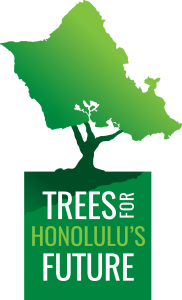 Organization: Trees for Honolulu’s Future Organization: Trees for Honolulu’s Future
Project Title: Trees for Pālolo…Planting Trees, Growing Community
Project Category: Tree Distribution, Community Engagement
Location: Pālolo, Oʻahu
Project Overview: This project in Pālolo will: 1) increase the tree canopy to capitalize on the myriad benefits of trees; 2) improve food security and community resilience; and 3) leverage institutional success and expertise to equip the community to sustainably maintain and advance this initiative long after the grant funds are exhausted. The project builds upon the Trees for Kaimukī initiative that proved when neighbors come together, successful outcomes result.
About: Trees for Honolulu’s Future (TFHF), a 501(c)(3) established in 2017, reinforces the efforts of government, private sector, and nonprofit organizations. We: 1) facilitate; 2) educate; and 3) advocate for urban trees. We do this work because we believe kumulāʻau are among our greatest natural and cultural assets in response to climate change. People and the environment are the beneficiaries of our work.
|
|
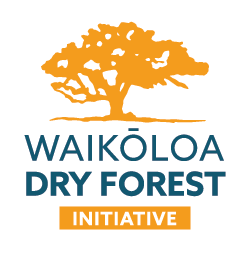 Organization: Waikōloa Dry Forest Initiative Organization: Waikōloa Dry Forest Initiative
Project Title: Waikōloa Community Forest Expansion
Project Category: Tree Planting, Education and Outreach
Location: Waikōloa Dry Forest Preserve, Hawaiʻi Island
Project Overview: This project seeks to increase Waikōloa Dry Forest Initiative’s (WDFI) capacity to enhance native forest health, preserve biodiversity, improve land stewardship, boost public awareness, and foster community engagement. Planting will be led by WDFI staff and include hundreds of volunteers so that our community can learn about native trees, develop a sense of connection to the natural environment, and actively engage in land stewardship.
About: WDFI’s mission is to protect, promote, and restore native Hawaiian dry forest. Since 2011, WDFI has established a large-scale forest preserve with documented success in outplanting native trees, establishing native forest plants through seed broadcasting, and mitigating invasive species and wildfire impacts. In conjunction with forest restoration, WDFI offers a range of enriching educational programs and stewardship opportunities to the public.
|
Completed Partner Projects
2024
Multi-year Partner Projects Completed in 2024
|
 Organization: UH Trees in Schools Organization: UH Trees in Schools
Project Title: Students Propagating ‘Ulu Trees for Schools on O‘ahu (SPROUTS-O‘ahu)
Forest Action Plan Priorities: Climate Change, Education & Outreach, Health & Well-being, Urban Tree Care
Location: Oʻahu
Project Overview: Farm to school engages students and school communities as agents of change for local food systems. As part of the broader farm to school movement in Hawai‘i, the SPROUTS-O‘ahu project will involve students and teachers in the propagation, planting, care, and curricular integration of ‘ulu (breadfruit) trees at Hawai‘i Department of Education (HIDOE) public and public charter schools across O‘ahu.
Beginning in January 2023 under the guidance of expert staff at the HIDOE Plant Nursery Kaimukī, students from Kaimukī Middle School will engage in the propagation of fifty ‘ulu trees, which will be distributed for planting at twenty five schools across O‘ahu in conjunction with Arbor Day in November 2023. Teams of teachers and grounds staff from each school will be enrolled in a 12-week, credit-earning, HIDOE-sponsored PDE3 course during the fall 2023 semester to equip them with the necessary skills and tools for proper tree planting, care, and curricular integration with students.
About: The GET Local initiative began in 2016 as a collaborative effort by the University of Hawaiʻi at Mānoa’s Cooperative Extension agents in agriculture and human resource based fields. The Extension agents incorporate the concept of GET Local and educating the community and stakeholders on the commodities available locally in order to increase consumer interest, grower knowledge, and general public awareness of local agriculture.
The initiative has expanded to become an umbrella for a variety of programming and collaborations between researchers, instructors, and extension faculty within the Collage of Tropical Agriculture and Human Resources (CTAHR) around local agriculture including Farm2School, the Food Systems Working Group, container gardening, local commodities, home and school gardens, healthy recipes, and field day events.
Visit their website.
|
|
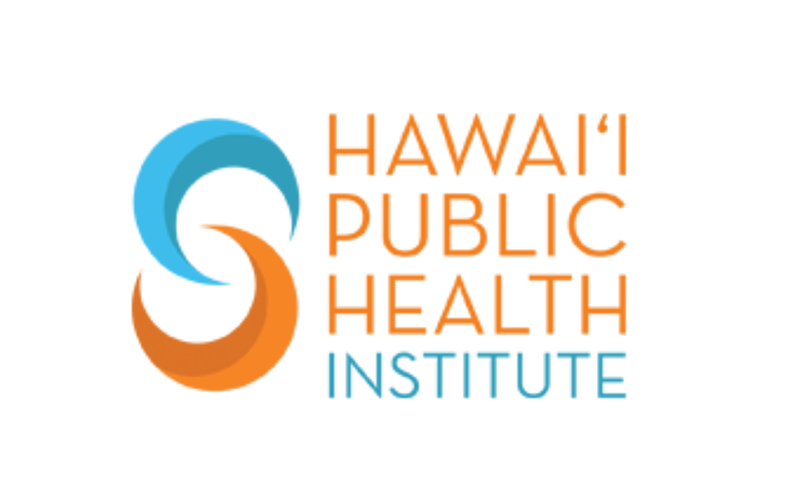 Organization: Hawaiʻi Public Health Institute Organization: Hawaiʻi Public Health Institute
Project Title: Food Trees For Schools Inititative
Forest Action Plan Priorities: Education & Outreach, Health & Well-being, Urban Tree Care, Water Quality & Green Infrastructure, Wildland Urban Interface
Location: Statewide
Project Overview: As part of Bank of Hawaii’s (BOH) 125th Anniversary celebration, BOH is partnering with Hawai‘i Public Health Institute (HIPHI) to distribute and plant food/fruit trees at selected Hawai‘i Department of Education (DOE) schools across six islands to fulfill the goals of BOH’s tree initiative. The objective of this partnership is for HIPHI to develop resources to support DOE tree plantings, and to distribute and plant 30 food/fruit trees and support materials in 2022 with a $30,000 grant from BOH Foundation.
During our application period, we experienced a high demand for the project, having received 27 applications from schools across Oʻahu, Kauaʻi, and Hawaiʻi Island . As stated previously, within our original project scope we will only be able to award 6 schools with tree plantings. The applicant pool is highly competitive, most schools having demonstrated a strong need and institutional/school wide support for a tree planting project. Additional funding will permit us to award more schools with trees.
About: The mission is to strengthen Hawaiʻi’s statewide farm to school movement by supporting our Island Networks in the areas of capacity building, resource development and sharing, professional development, and policy development and advocacy.
Visit their website.
|
|
 Organization: Mālama Learning Center Organization: Mālama Learning Center
Project Title: Promoting Tree Planting and Care Through Education to Build Resilient Communities in Leeward Oʻahu
Forest Action Plan Priorities: Education & Outreach, Health & Well-being, Urban Tree Care
Location: Leeward Oʻahu
Project Overview: Scientists predict that by 2050, impacts of climate change will affect Leeward Oʻahu communities disproportionately with rising temperatures, more wildfires, and increased periods of sustained drought. Composed predominantly of Native Hawaiians and Pacific Islanders, many living in poverty, Leeward Oʻahu residents need and deserve support to build resilient communities. This project will provide education, training, and opportunities for mitigating climate change impacts through tree planting. The focal audience will be high school students and their families, giving them meaningful outdoor experiences through work in partnership with schools, clubs, and other groups. The project will give at-risk youth skills in problem-solving and community outreach while learning career-building skills such as growing trees, planting properly, and providing tree care. Through television outreach, thousands more will understand the value of planting trees to improve their health and well-being.
About: Mālama Learning Center is a place in West O‘ahu that brings art, science, conservation and culture together to promote sustainable living throughout Hawai‘i. MLC strives to unify area schools, residents and businesses around a shared ethic of caring and conservation. Its mission is to teach and inspire communities to create healthy living environments.
Visit their website.
|
|
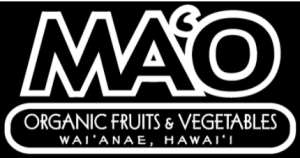 Organization: MAʻO Organic Farms Organization: MAʻO Organic Farms
Project Title: Arboriculture Training and Green job Development Pathways for O’ahu Youth working in Community Forestry & Food Security
Project Category: Education & Outreach
Location: Ahupuaʻa of Waiʻanae, Oʻahu
Project Overview: Proper tree maintenance is critical for gaining benefits from our Urban and Community Forests. On O’ahu there is a high demand for certified and qualified arborists that outpaces the supply, resulting in poor tree care. There is a need for more certified and qualified arborists dedicated to promoting community well-being. MA’O Farms, in partnership with Aloha Arborist Association, will add specialist instruction in tree care to their young farmer development program. We also expect that an increase in tree-care knowledge will result in increased yields for our food-bearing trees.
Visit their website.
|
|
 Organization: North Shore Community Land Trust Organization: North Shore Community Land Trust
Project Title: I Lei Waialeʻe i ka Hala: To Adorn Waialeʻe with a Lei of Change
Project Category: Education & Outreach
Location: Ahupuaʻa of Waialeʻe, Oʻahu
Project Overview: Waialeʻe Lako Pono is a collaborative project to restore holistic and reciprocal abundance among the human and non-human communities vested in Waialeʻe, Oʻahu. The 30-acre project site surrounds the 20-acre Waialeʻe wetland complex which includes former loʻi kalo, Kalou fishpond, and prime habitat for native plants, birds, fish, and insects. Today, while the parcel is dominated by invasive vegetation, the soil and water resources remain largely undisturbed and present promising restoration potential. Guided by a 2019 community planning process, NSCLT and their partners’ goal is to restore the native ecosystems and traditional Hawaiian agriculture through active community participation and education. Since gaining site access in 2020, we have made great progress in initial site cleanup, invasive species removal, loʻi kalo restoration, and native planting. One of their critical restoration goals yet uninitiated is reforestation, which this project implements.
Visit their website.
|
|
 Organization: Mālama Kauaʻi Organization: Mālama Kauaʻi
Project Title: Farmers Enhancing Equitable Distribution (FEED)
Project Category: Education & Outreach
Location: Island of Kauaʻi
Project Overview: Farmers Enhancing Equitable Distribution (FEED) will train 50 Kauaʻi farmers in tree care and create 18 on-farm orchard expansions. Farmers will be selected via a simple application, with an emphasis on minority farms that sell to food access programs, such as SNAP/DA BUX, keiki and kūpuna feeding, emergency food distributions, and others. FEED will strategically invest in local farmers, enhance farmer profitability and productivity, create diversification of agricultural products in the local market, and increase access to local food for our most vulnerable. We proposed this project based upon the demands from both farmers and food access programs, so they can fill each other’s needs for a more sustainable food system.
Visit their website.
|
Learn more about all of the projects we’ve funded since 1993 on our StoryMap below.
Supporting Urban & Community Forestry in Hawaiʻi Since 1993
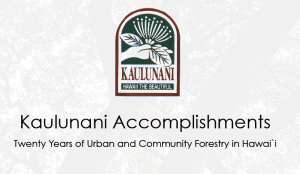
Document highlighting 20 years of Accomplishments. Click to download the PDF document.
Return to Kaulunani
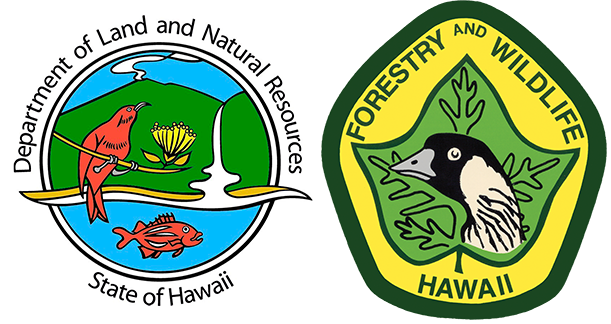









































 Organization
Organization




















